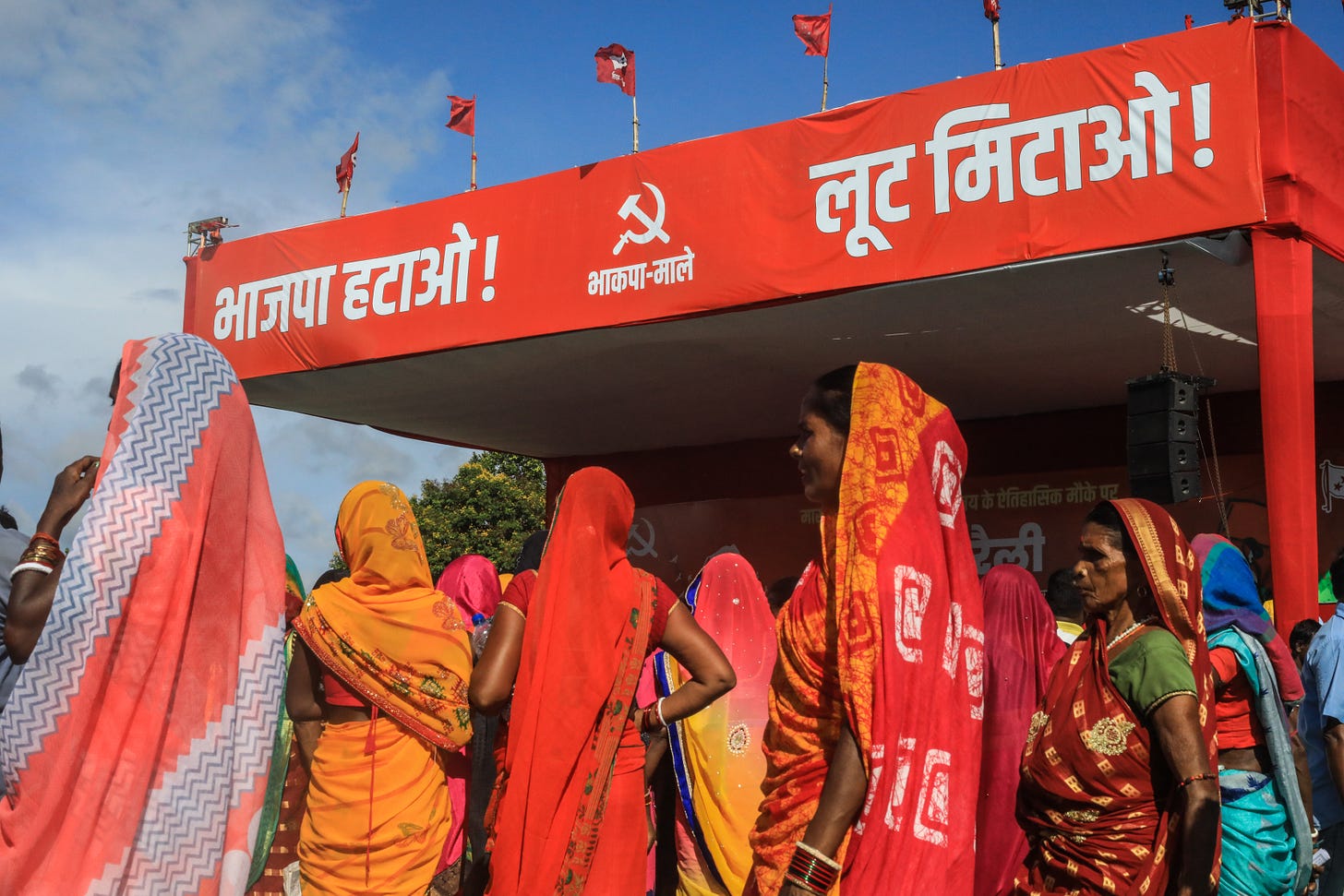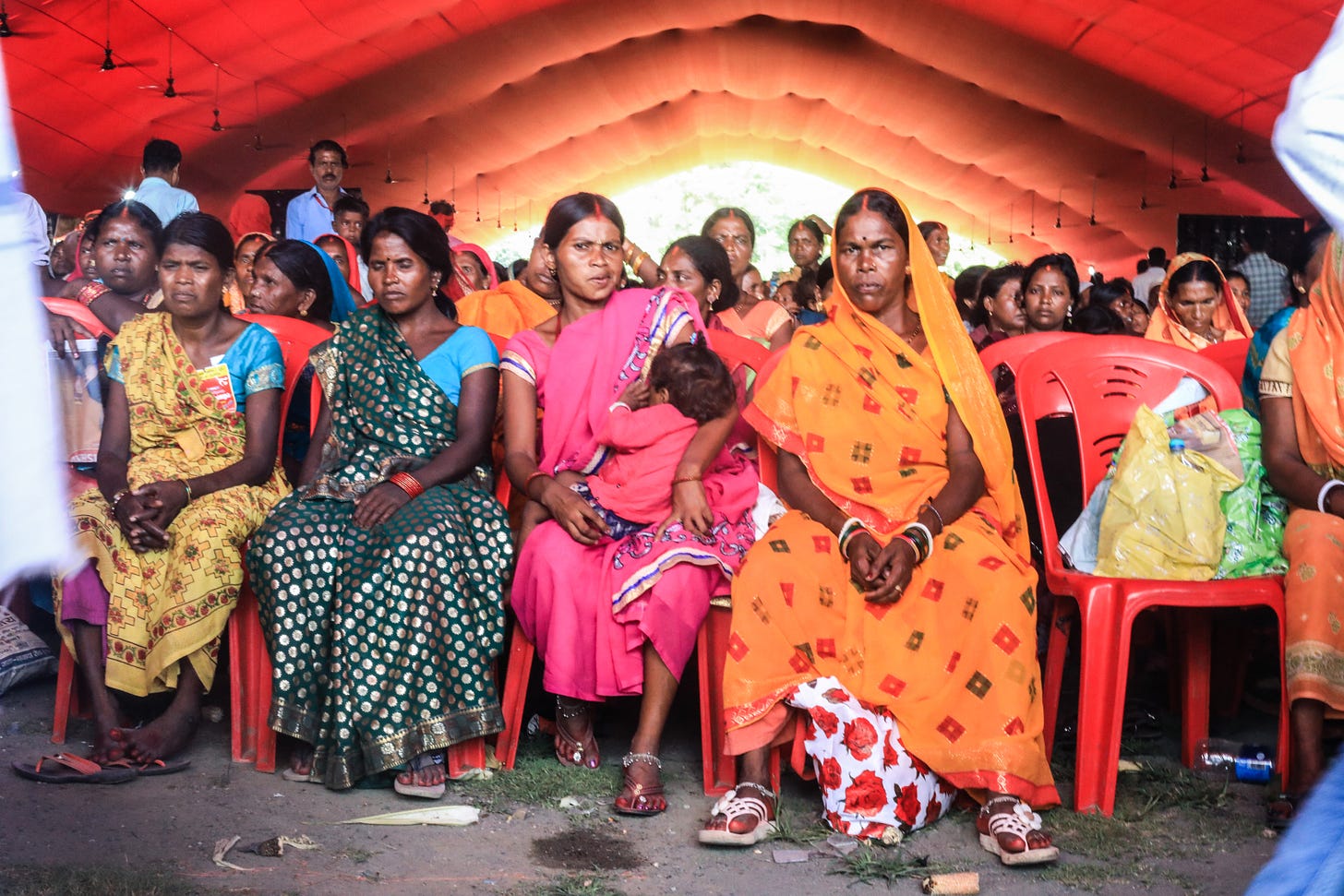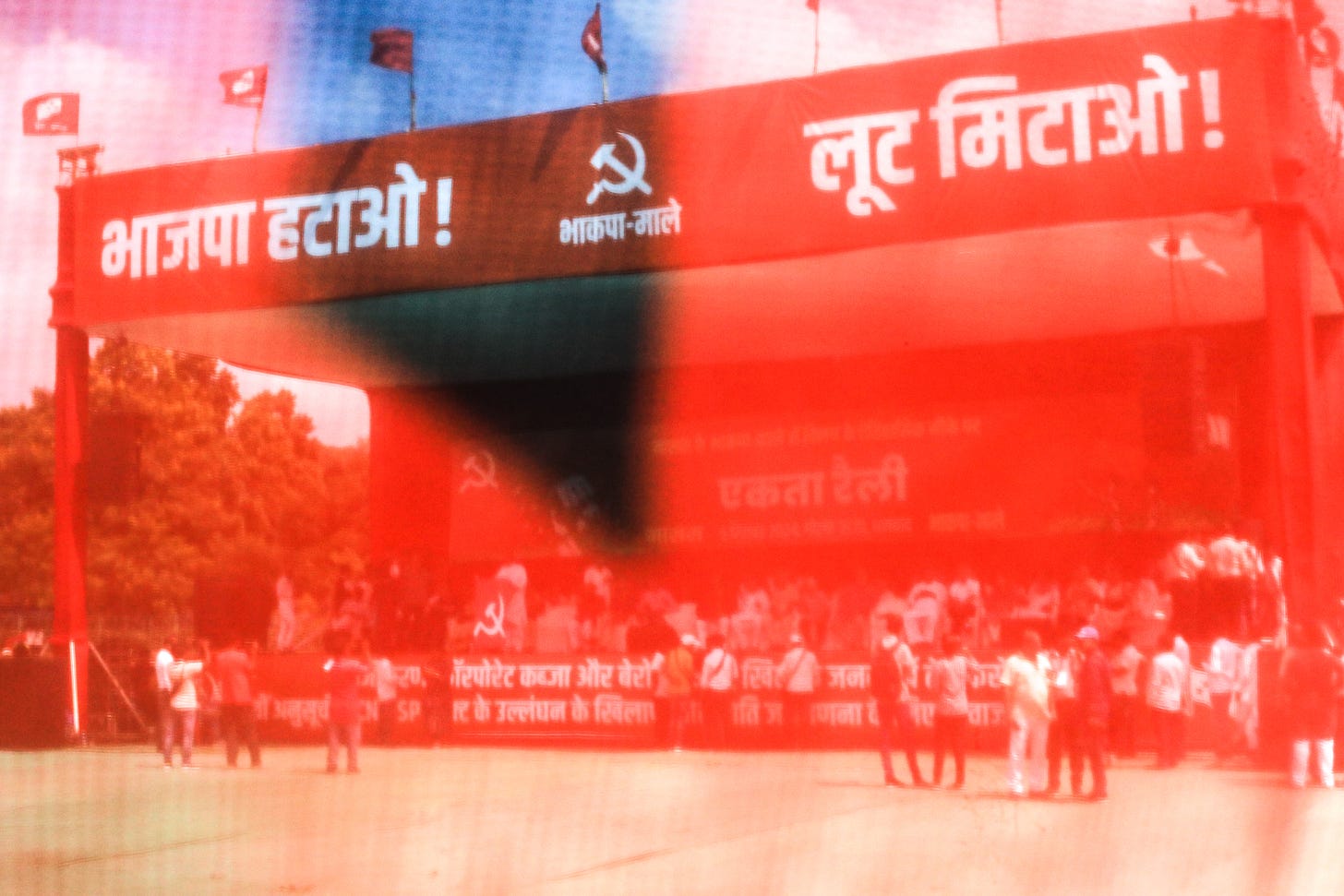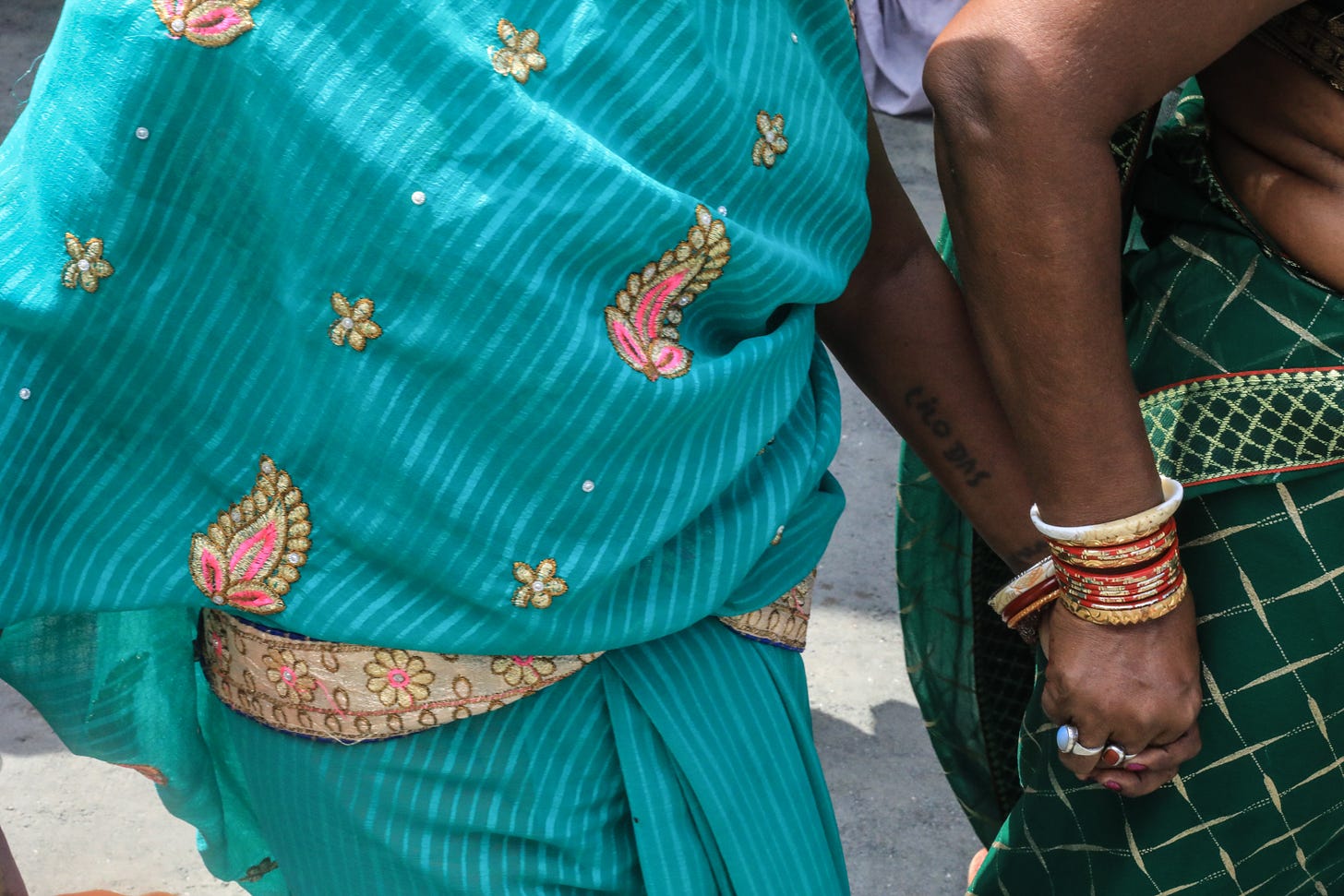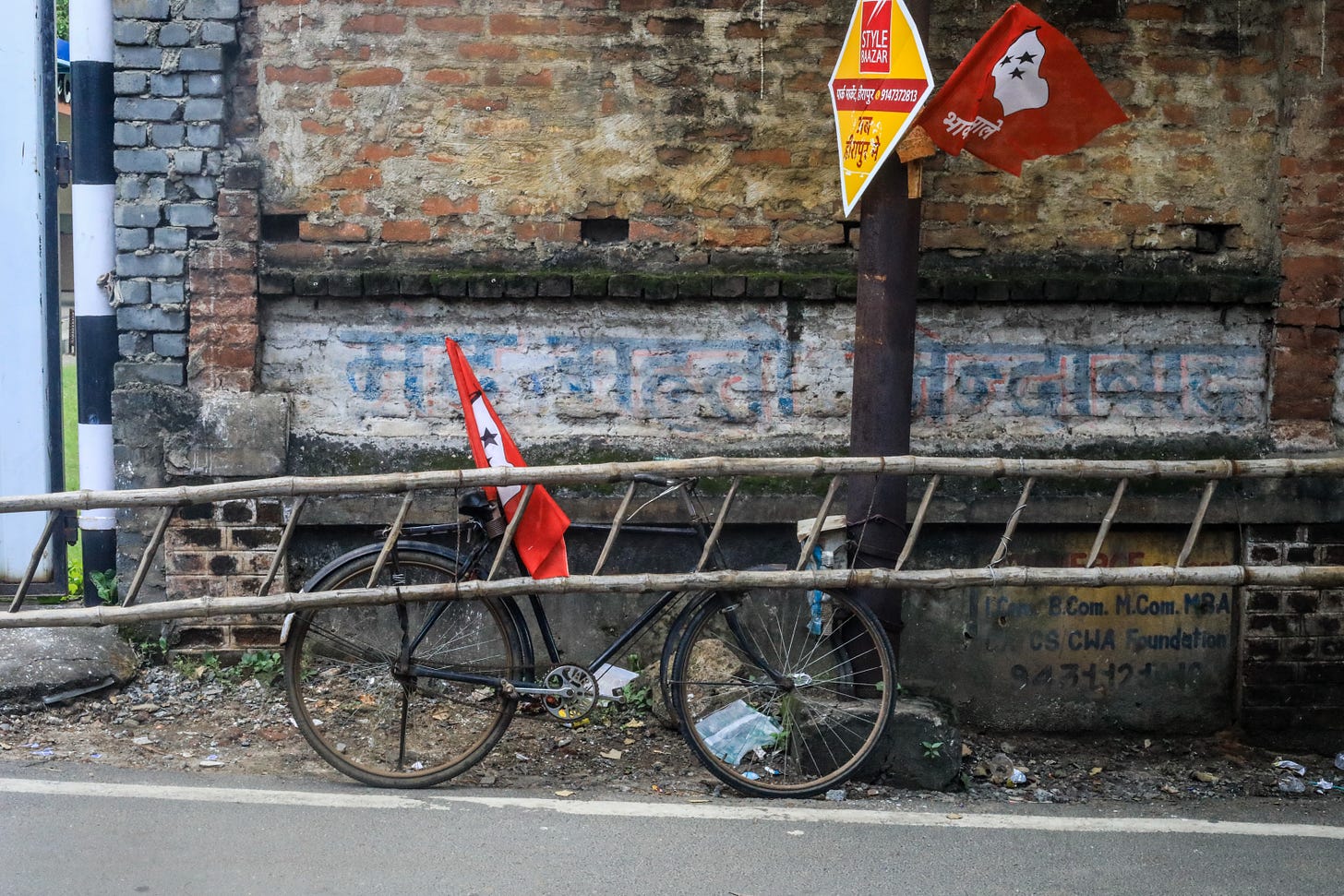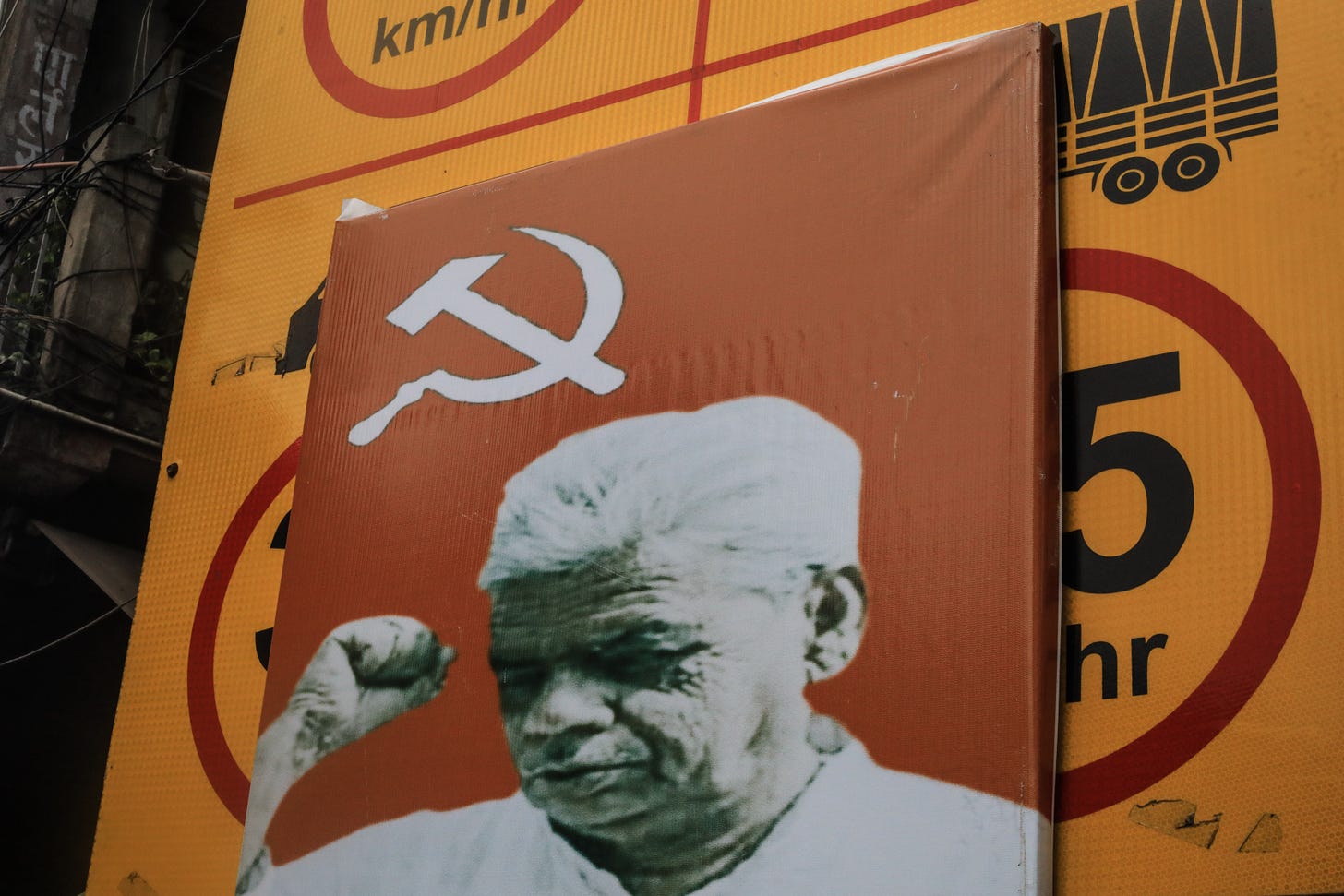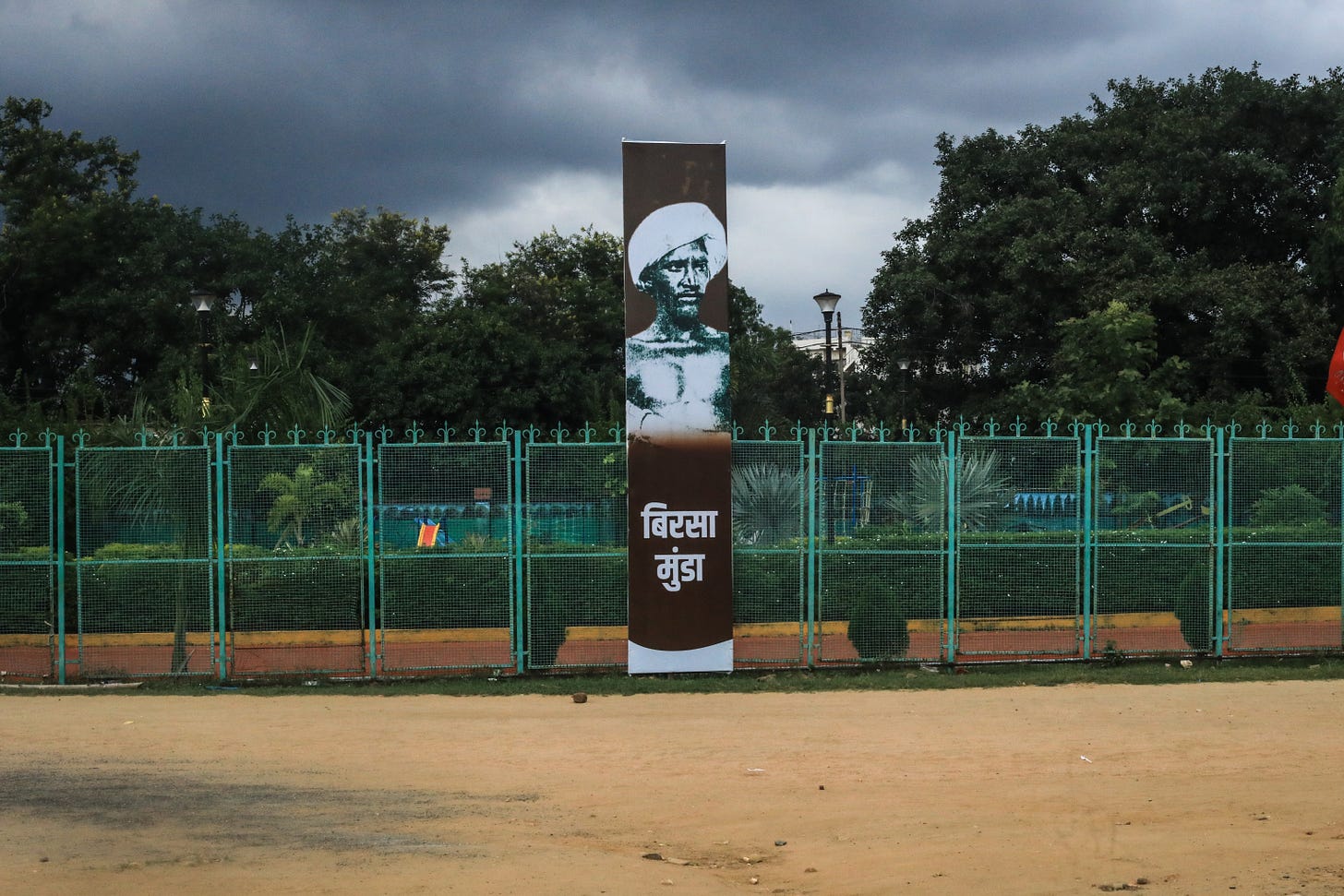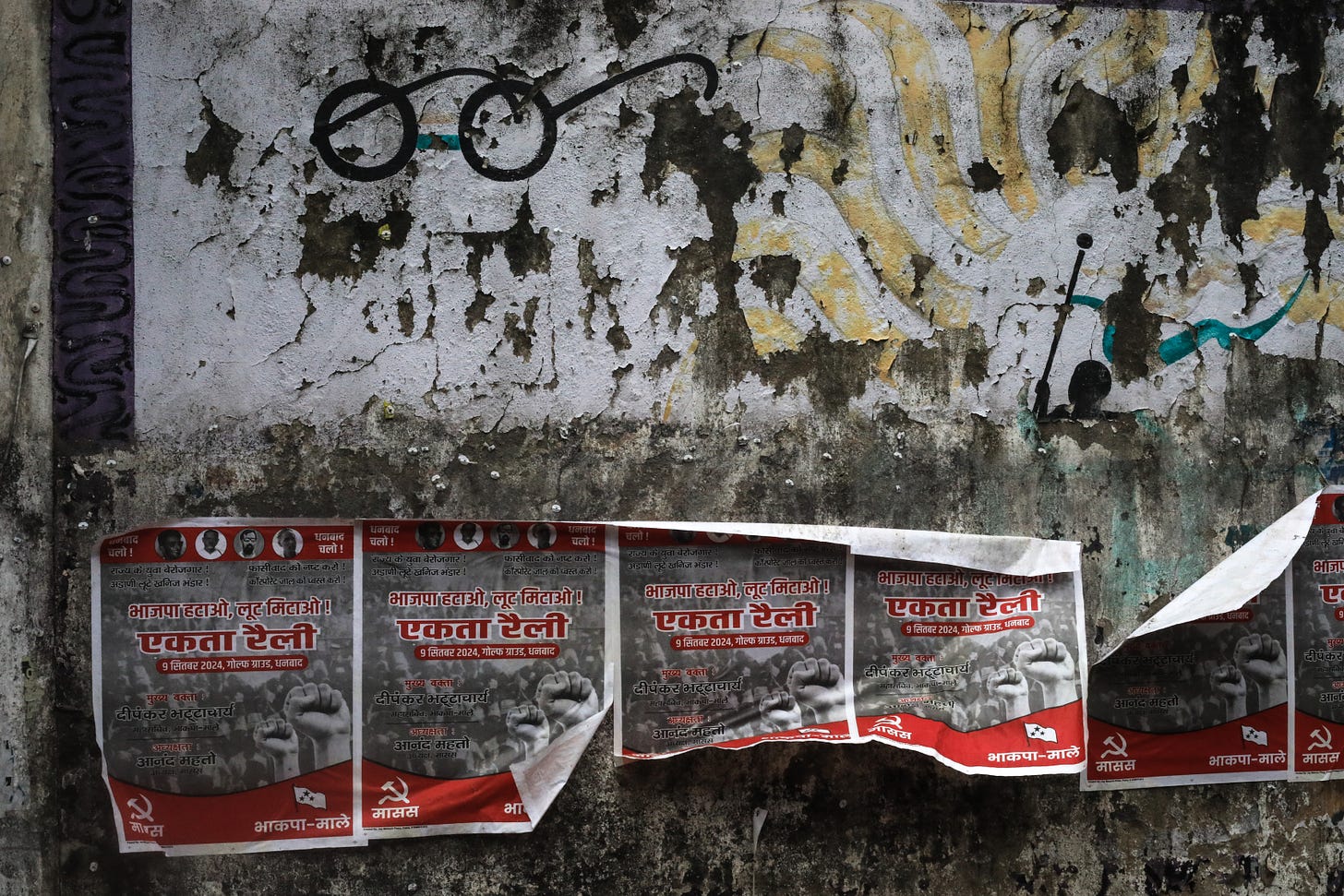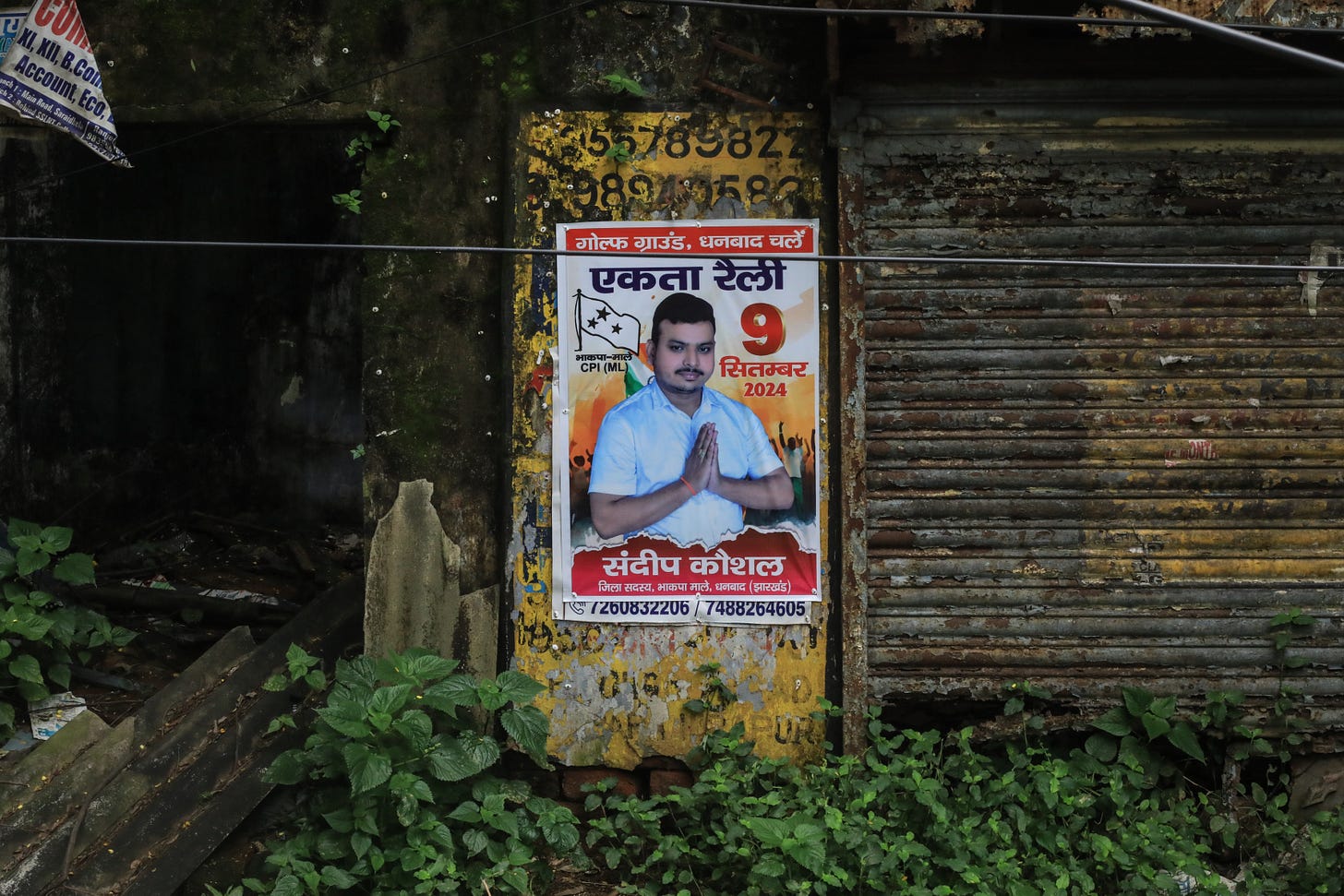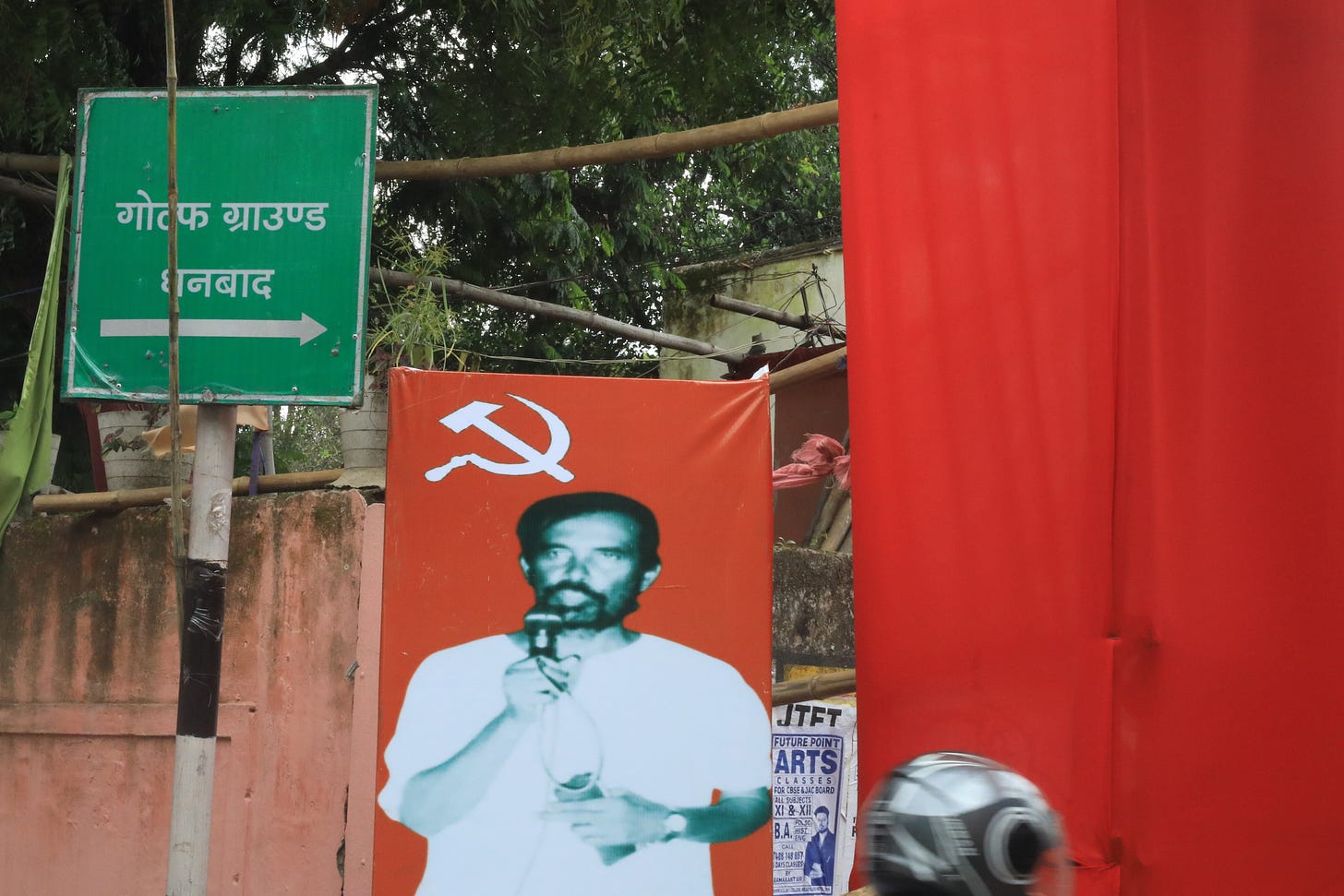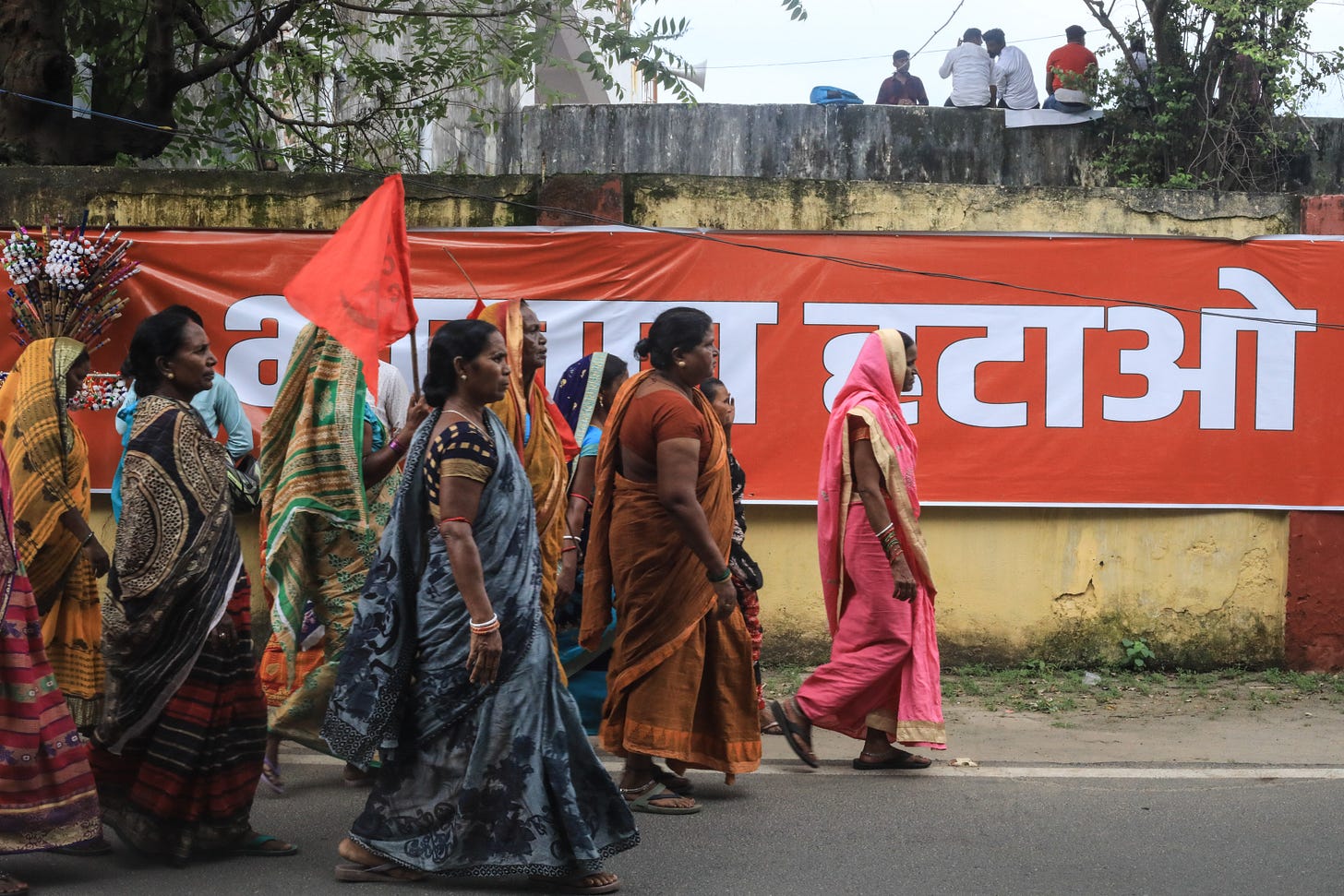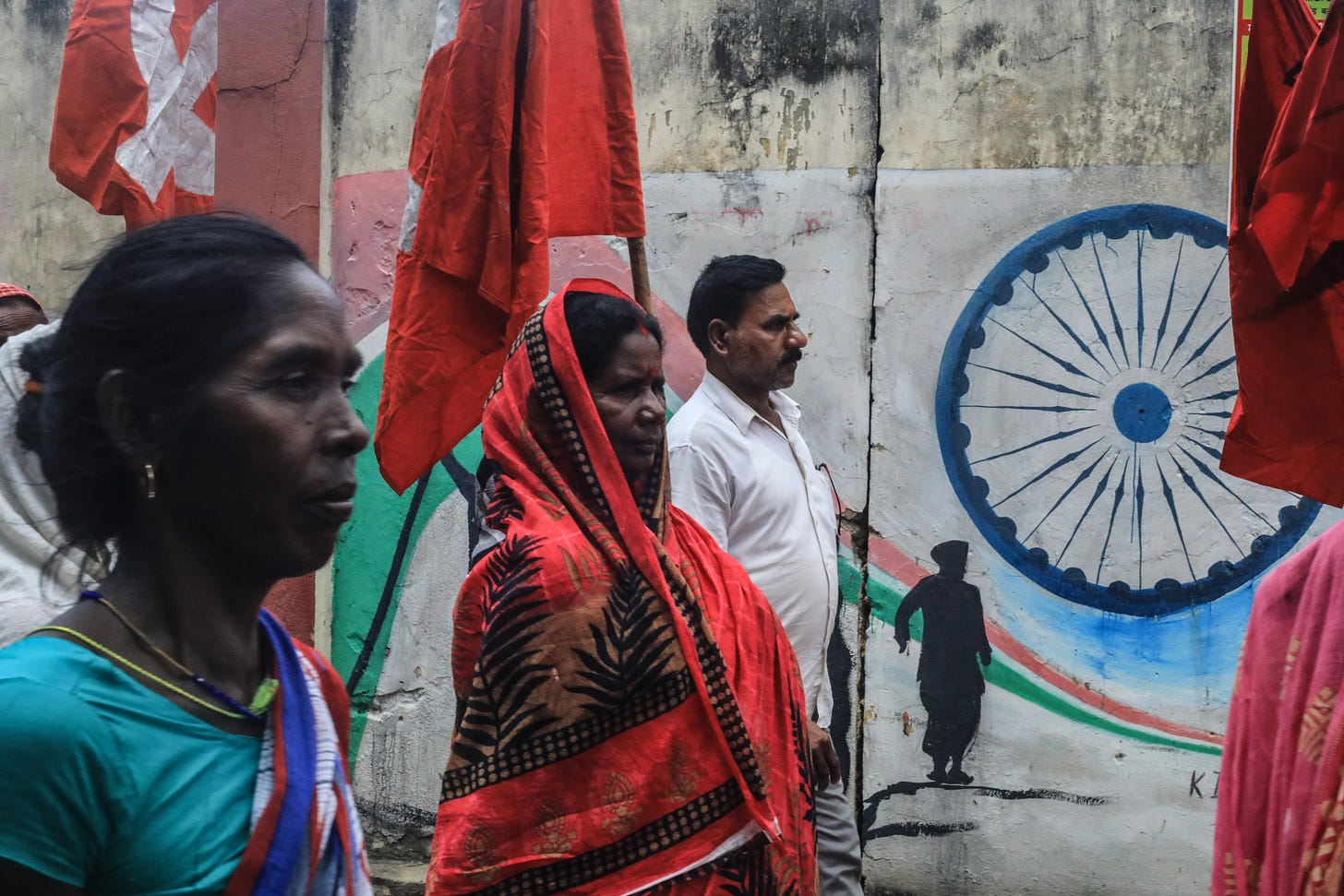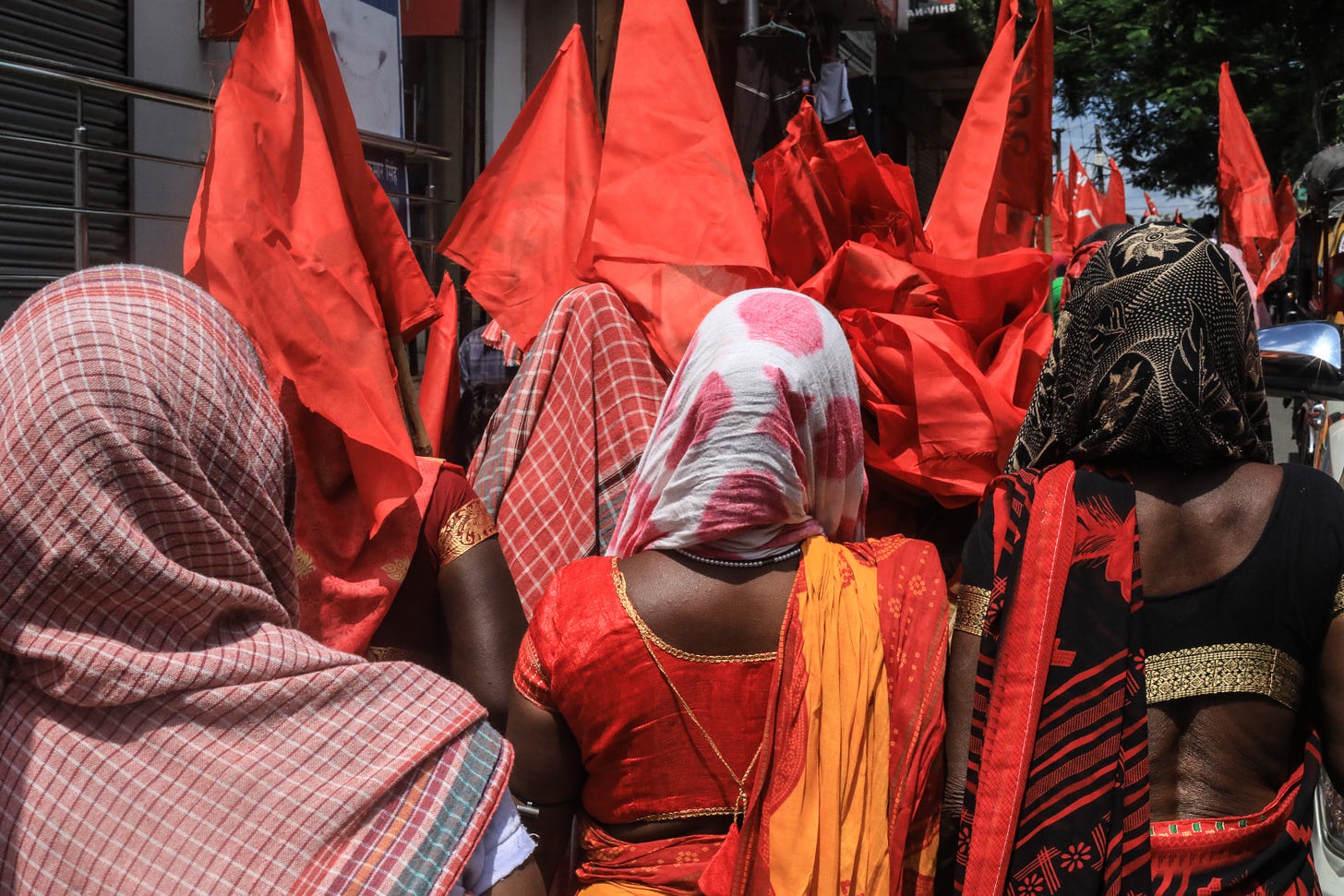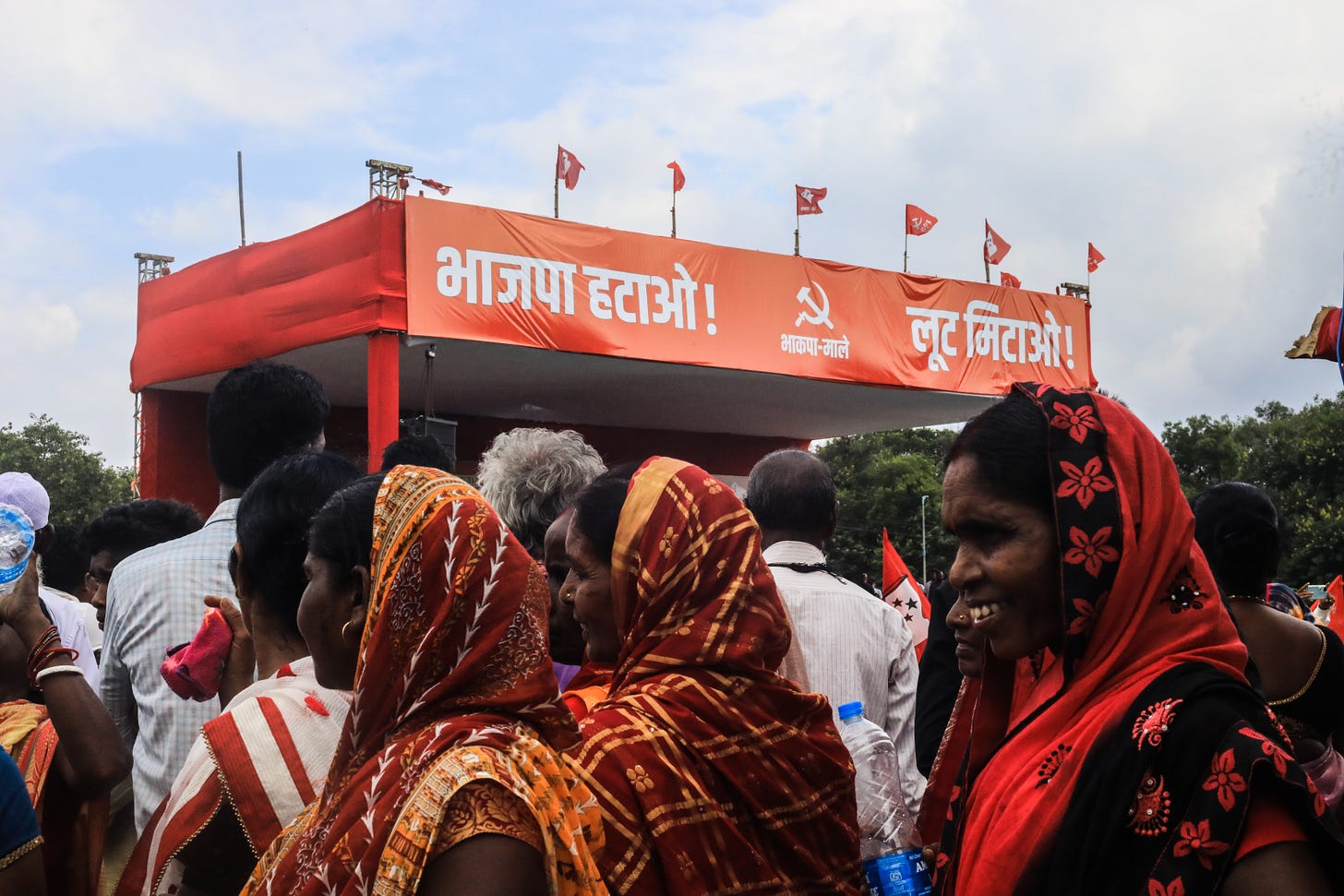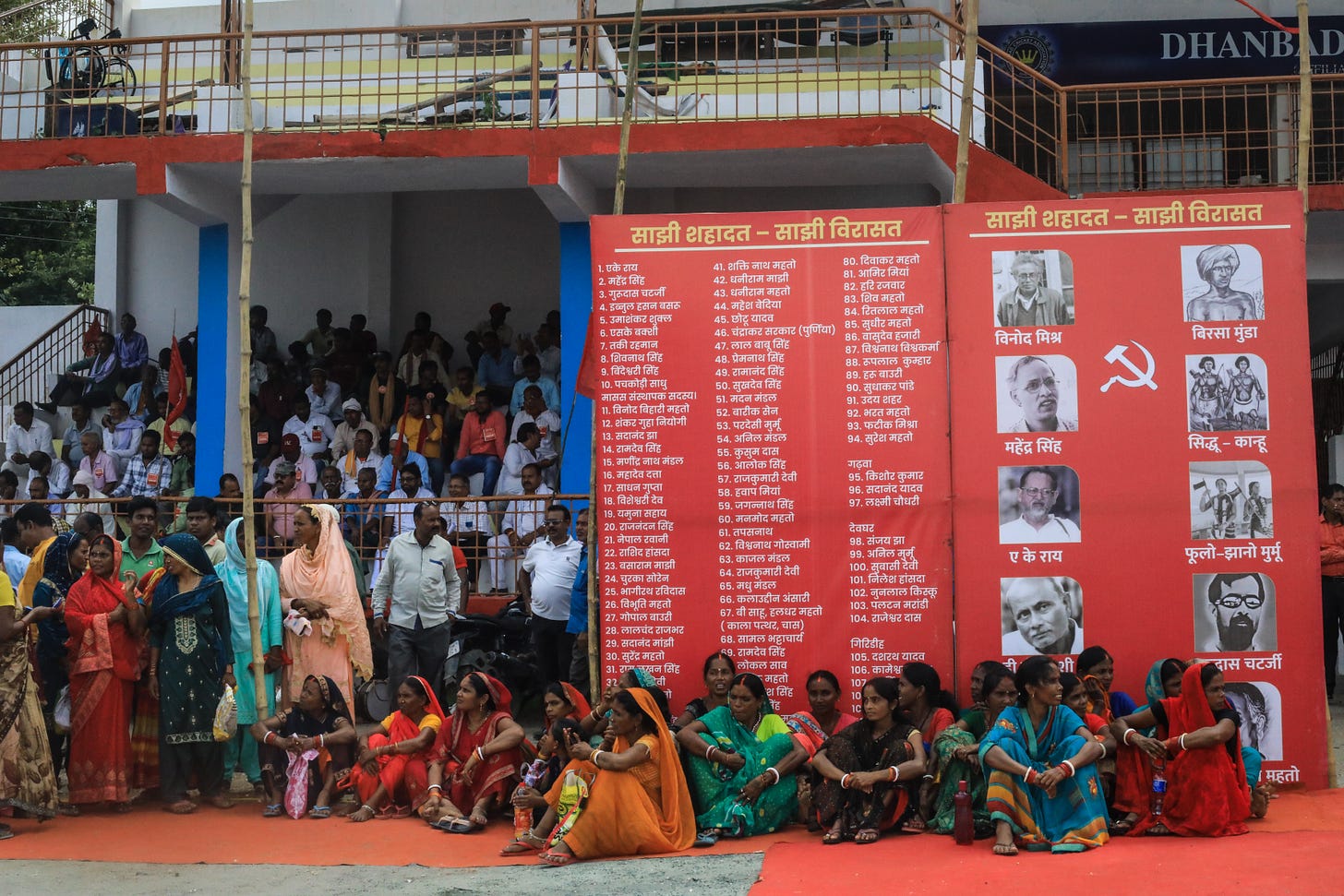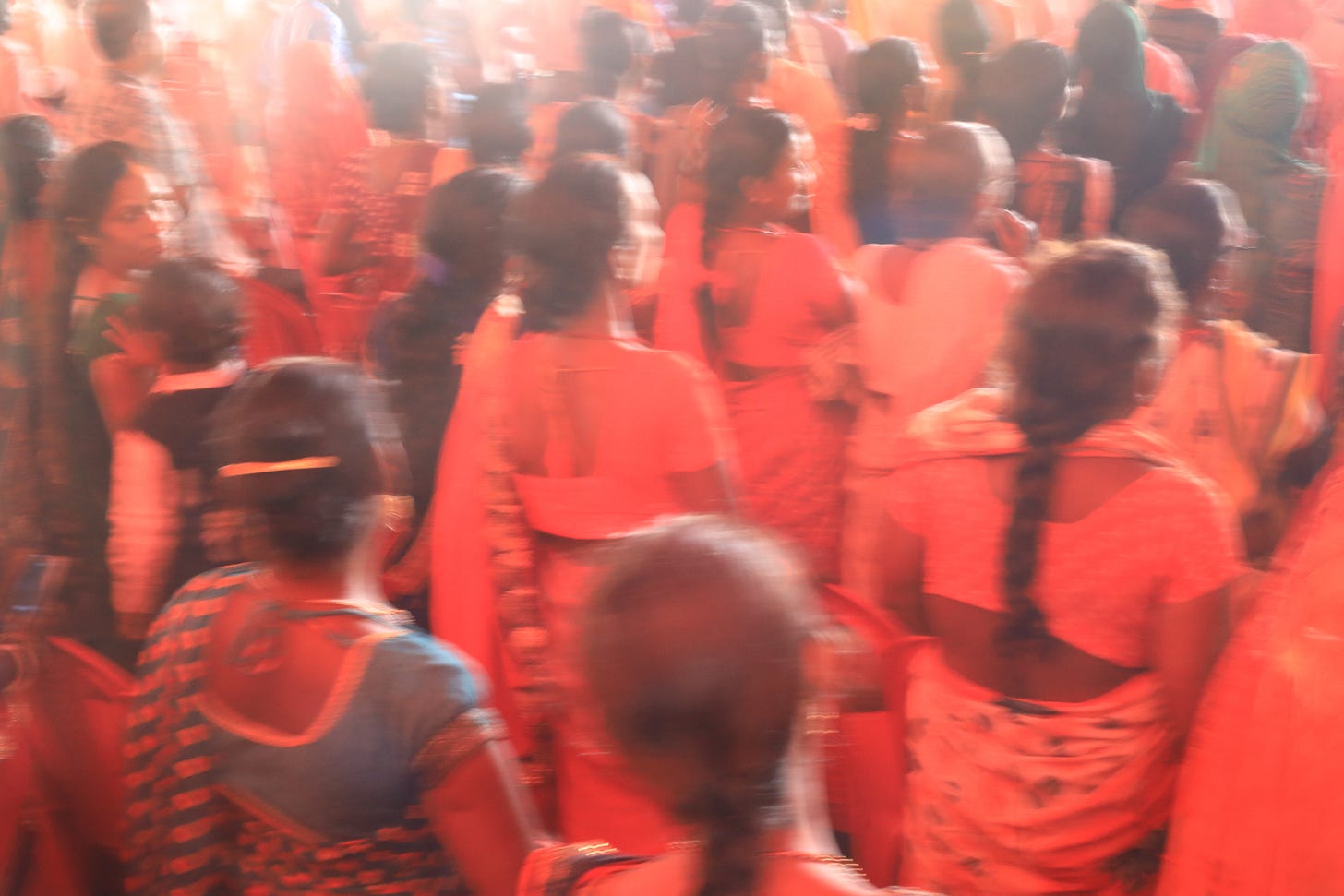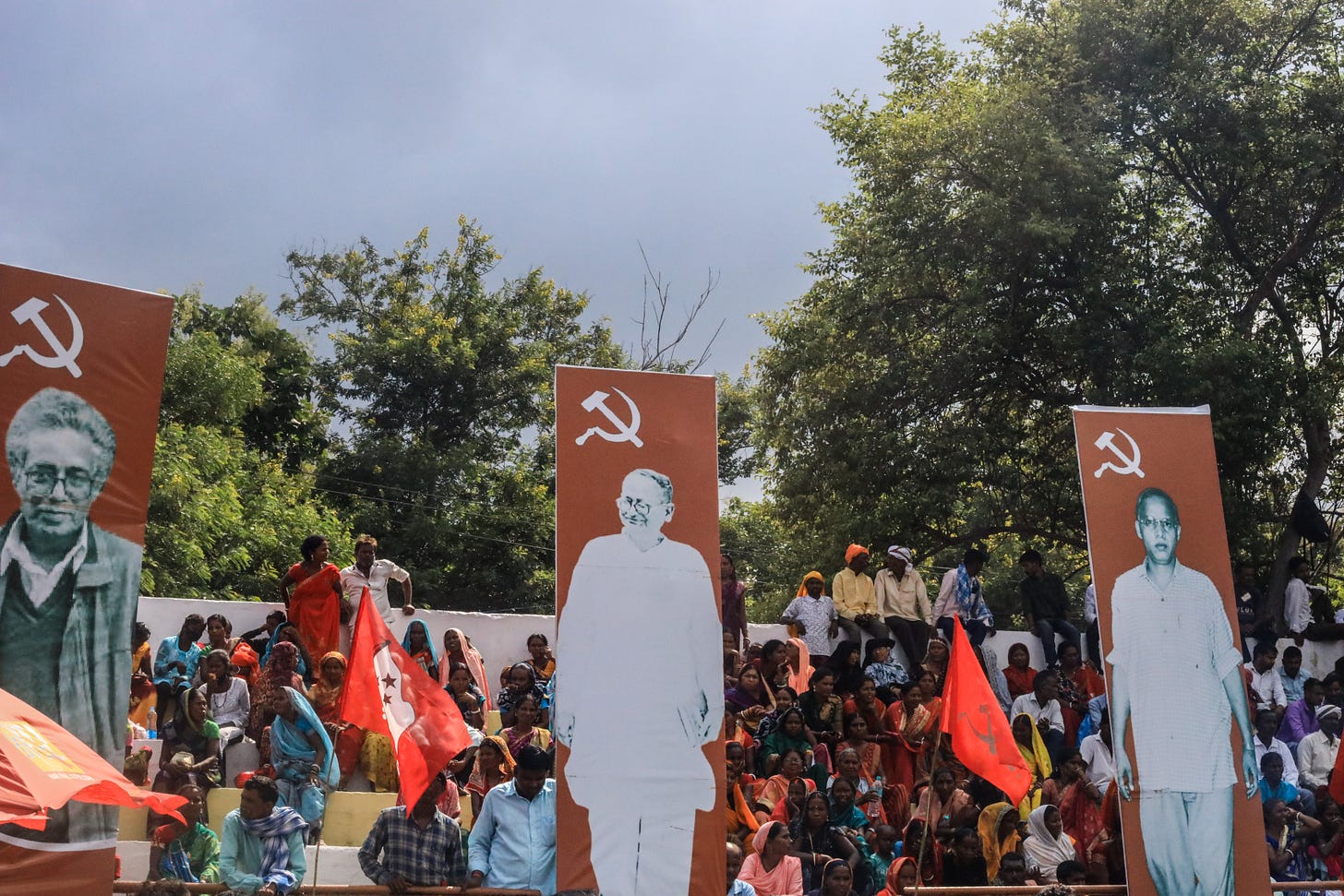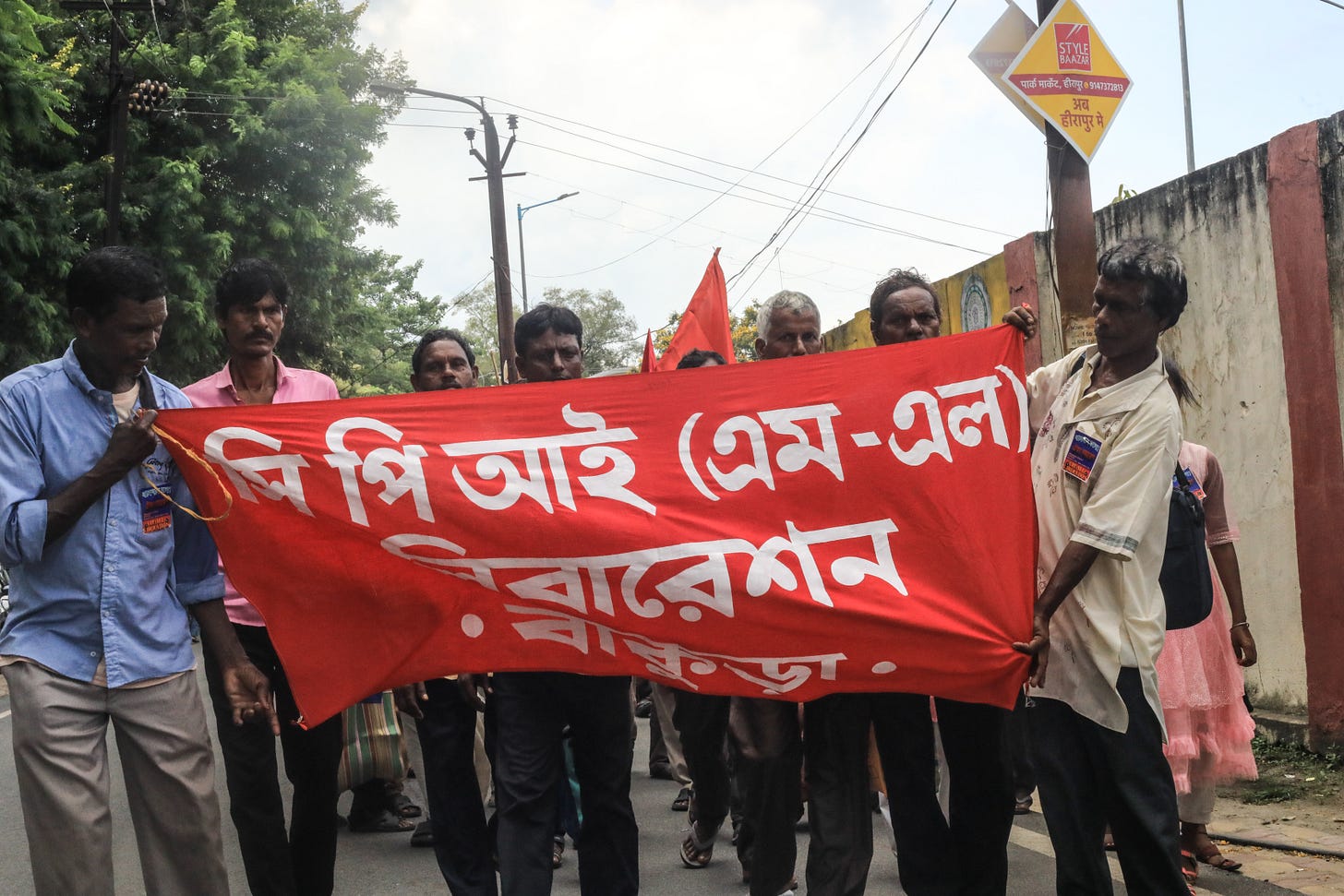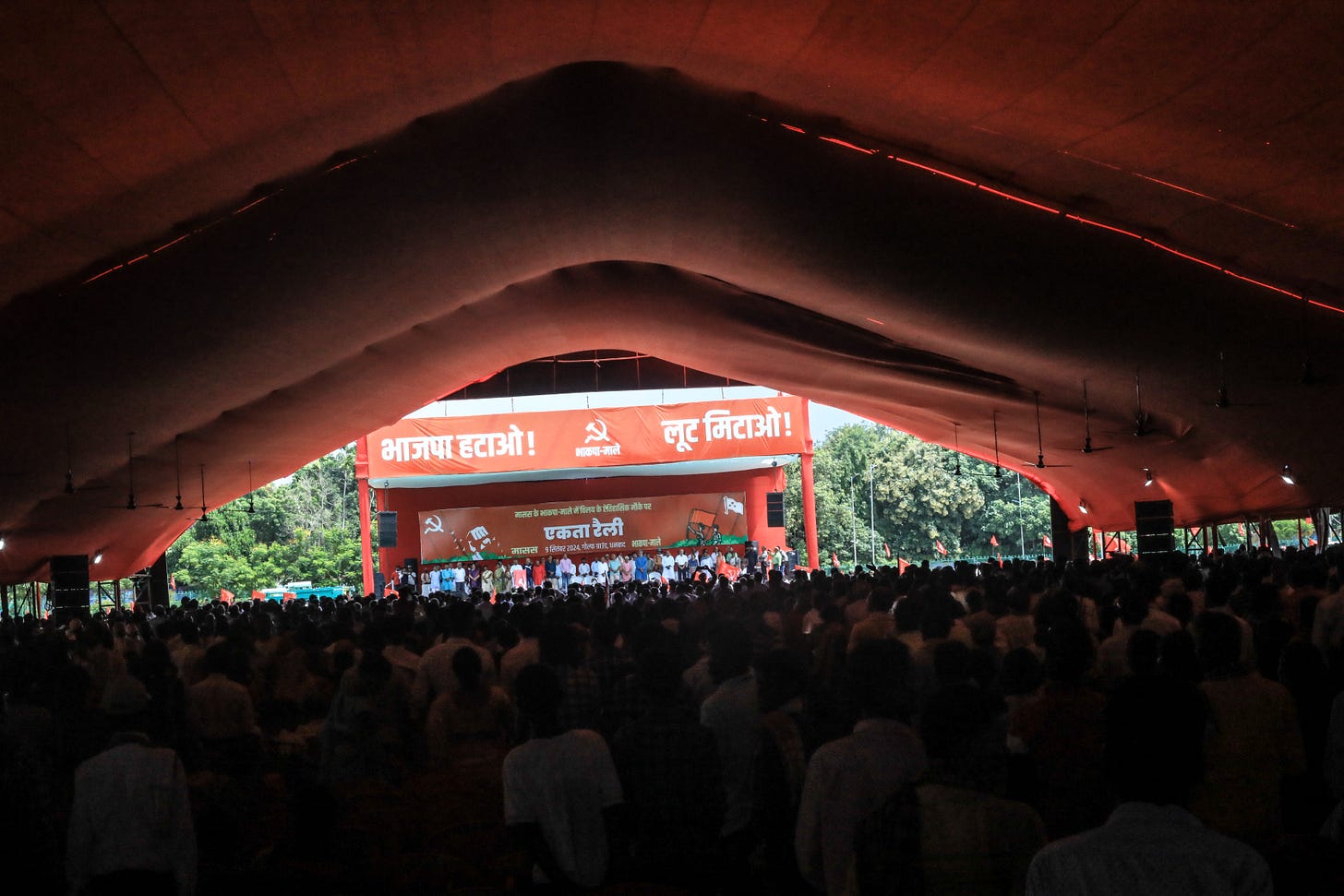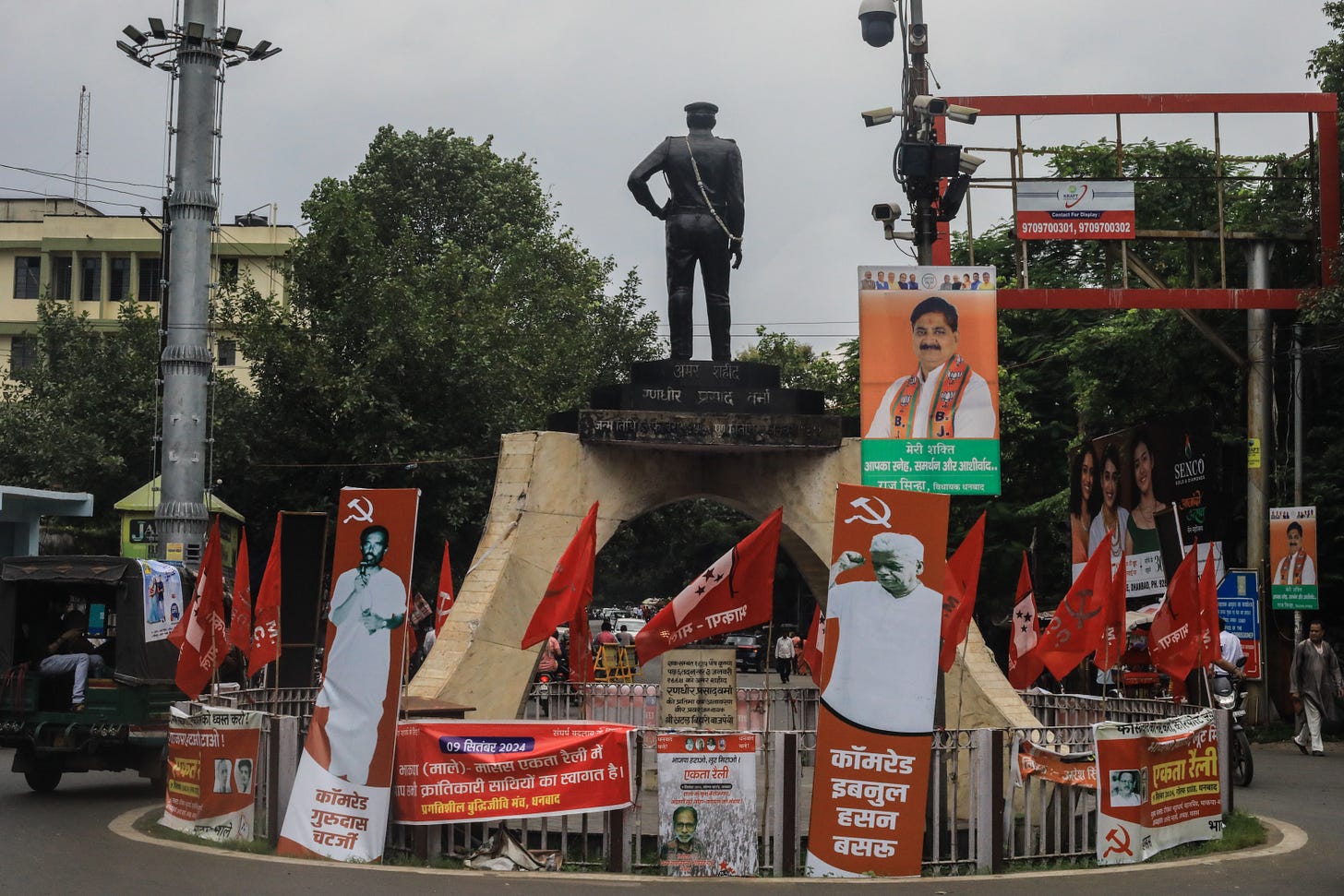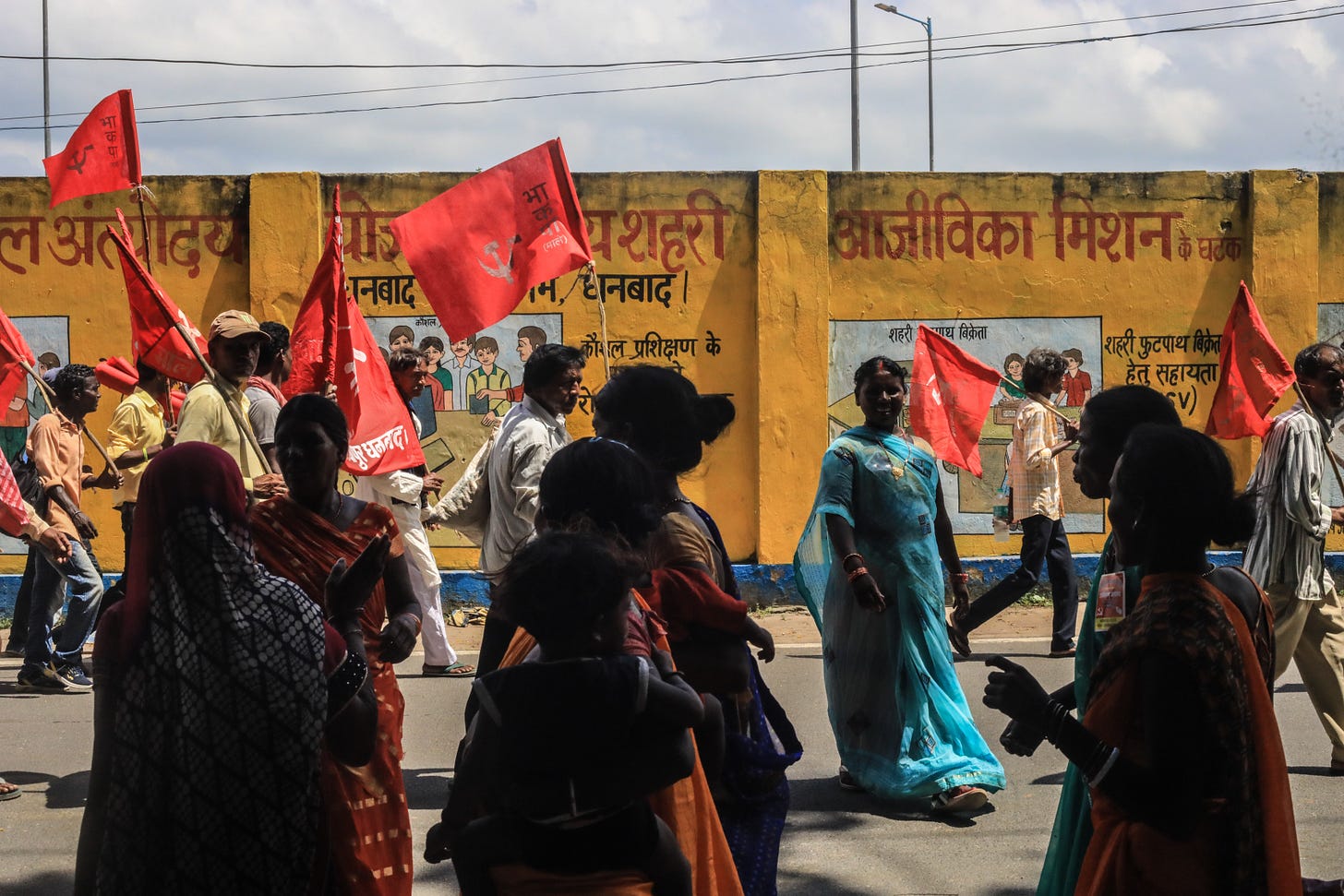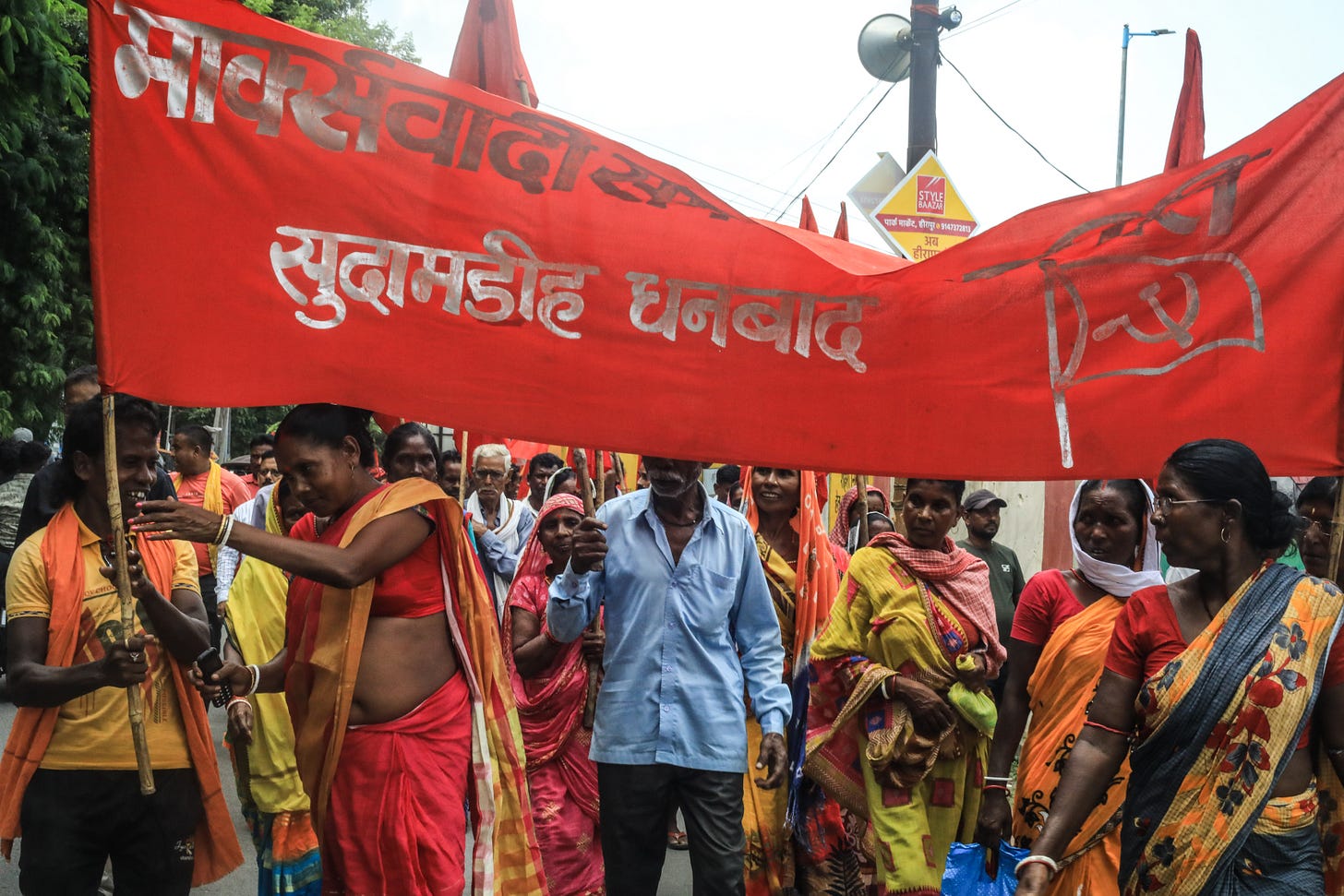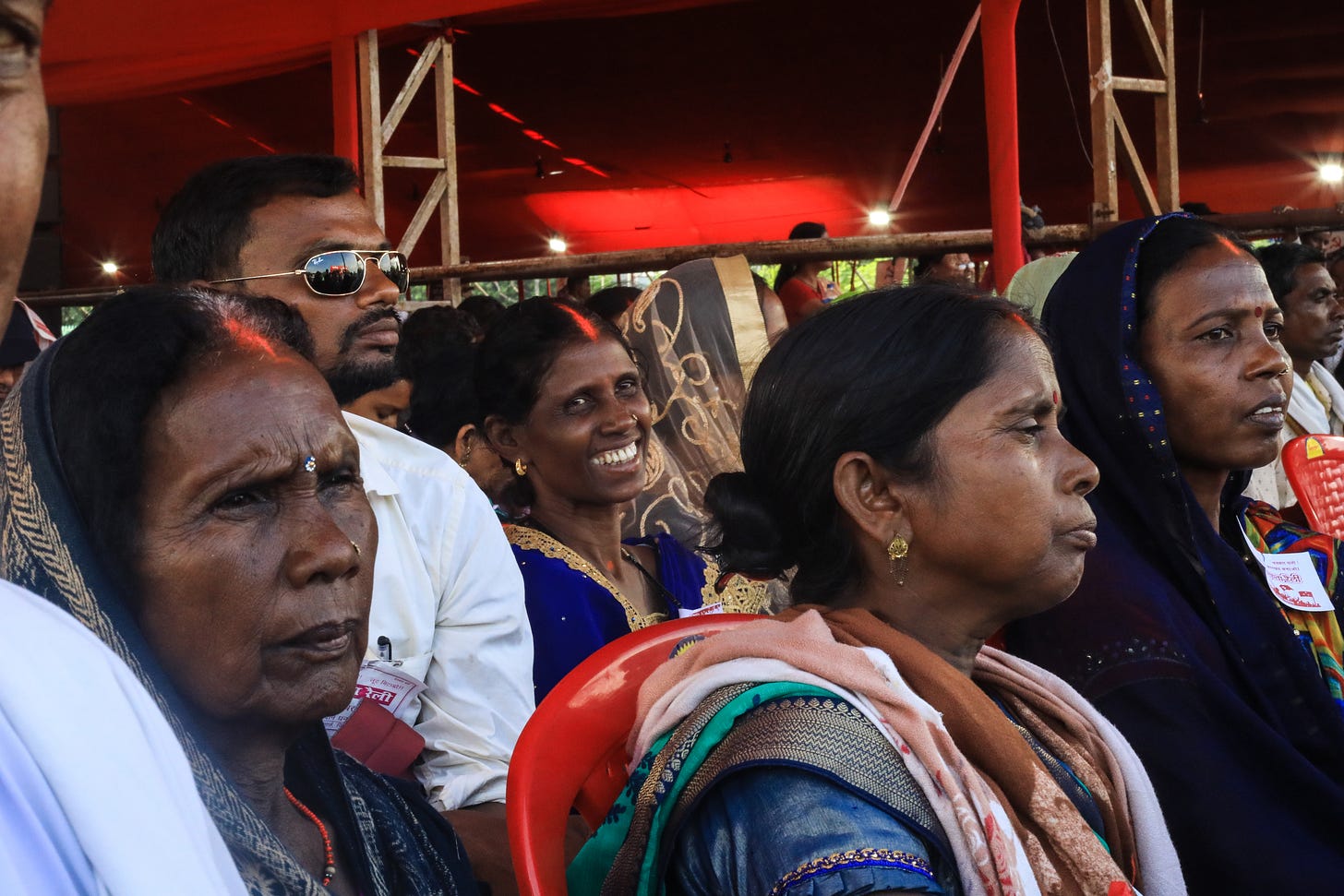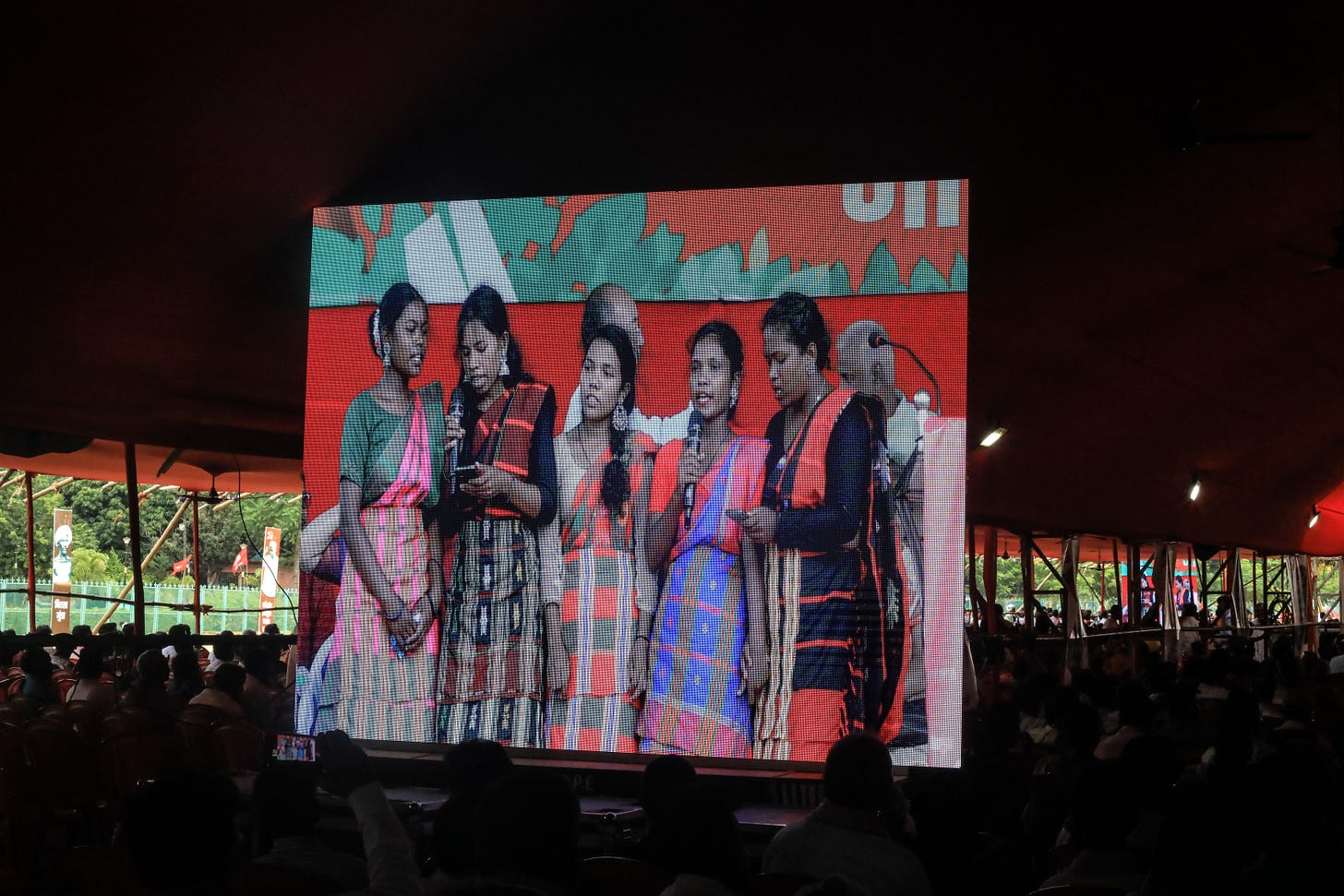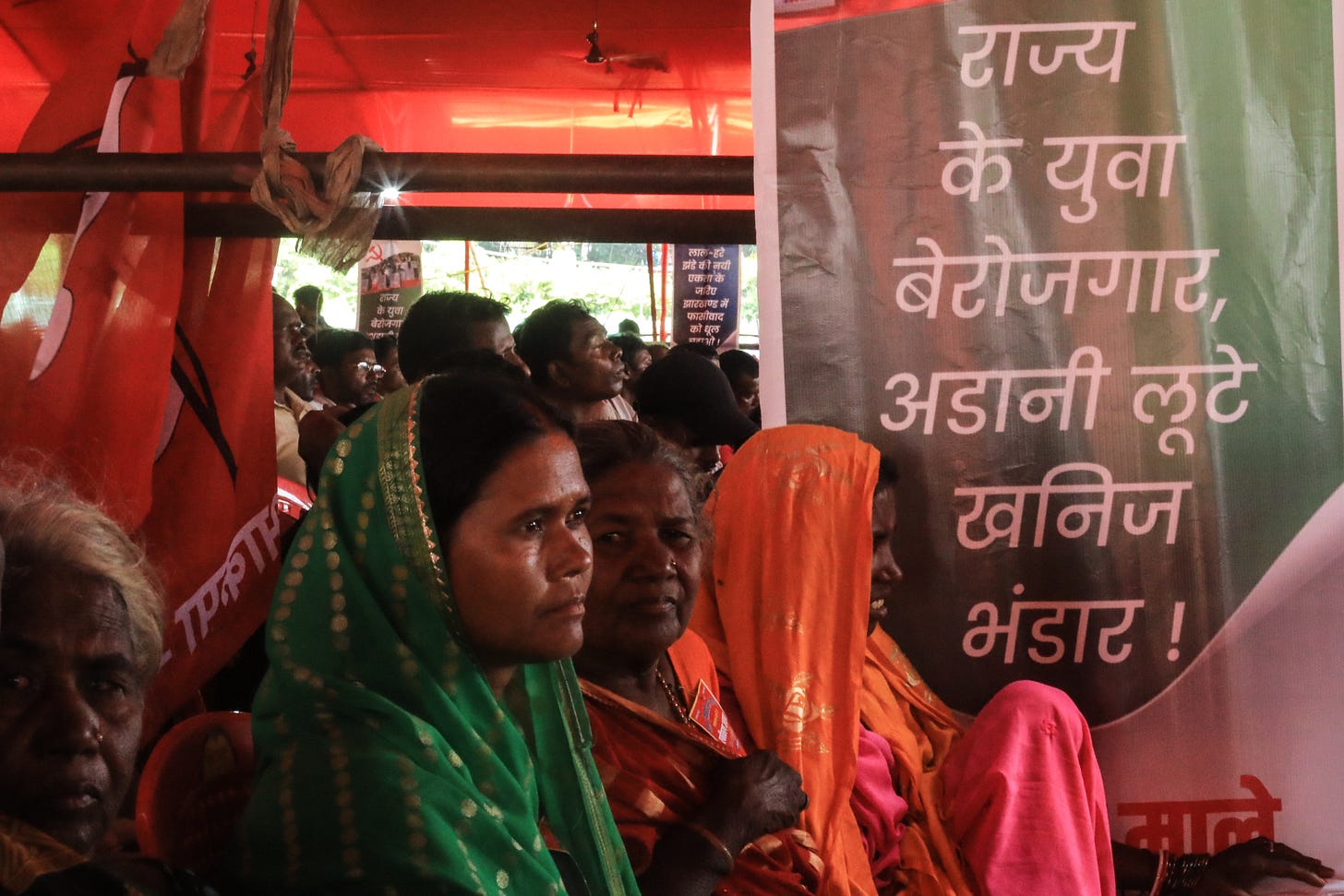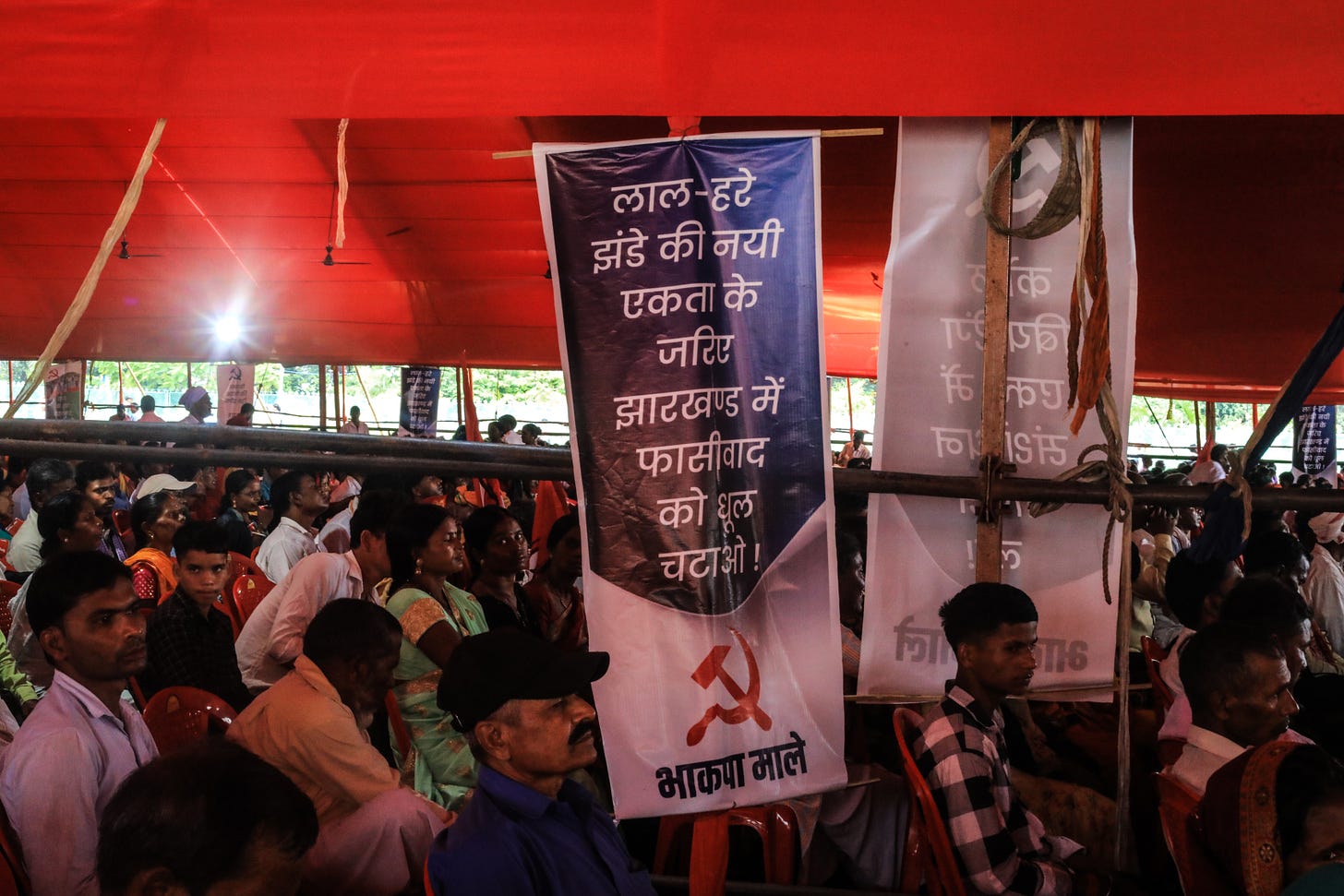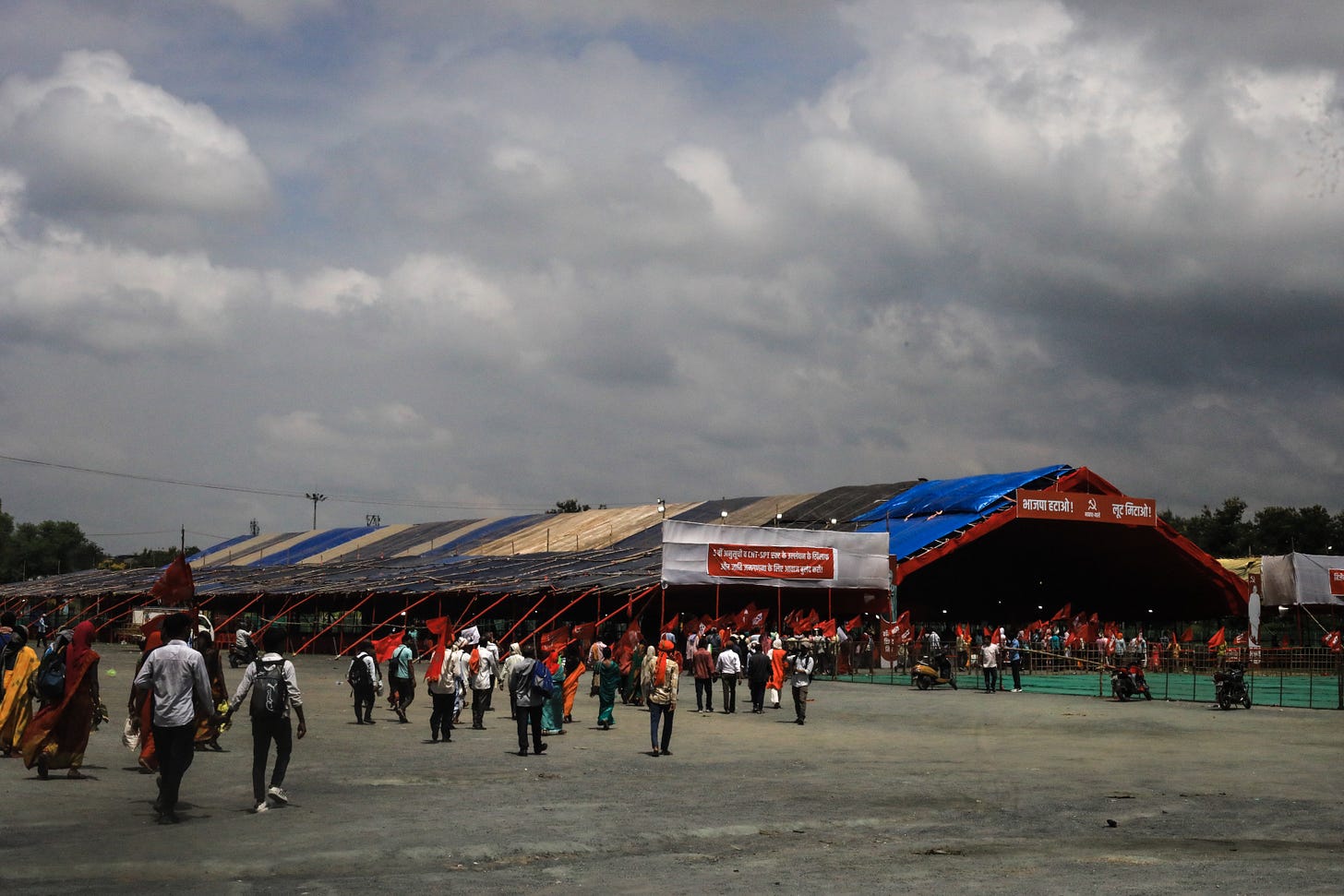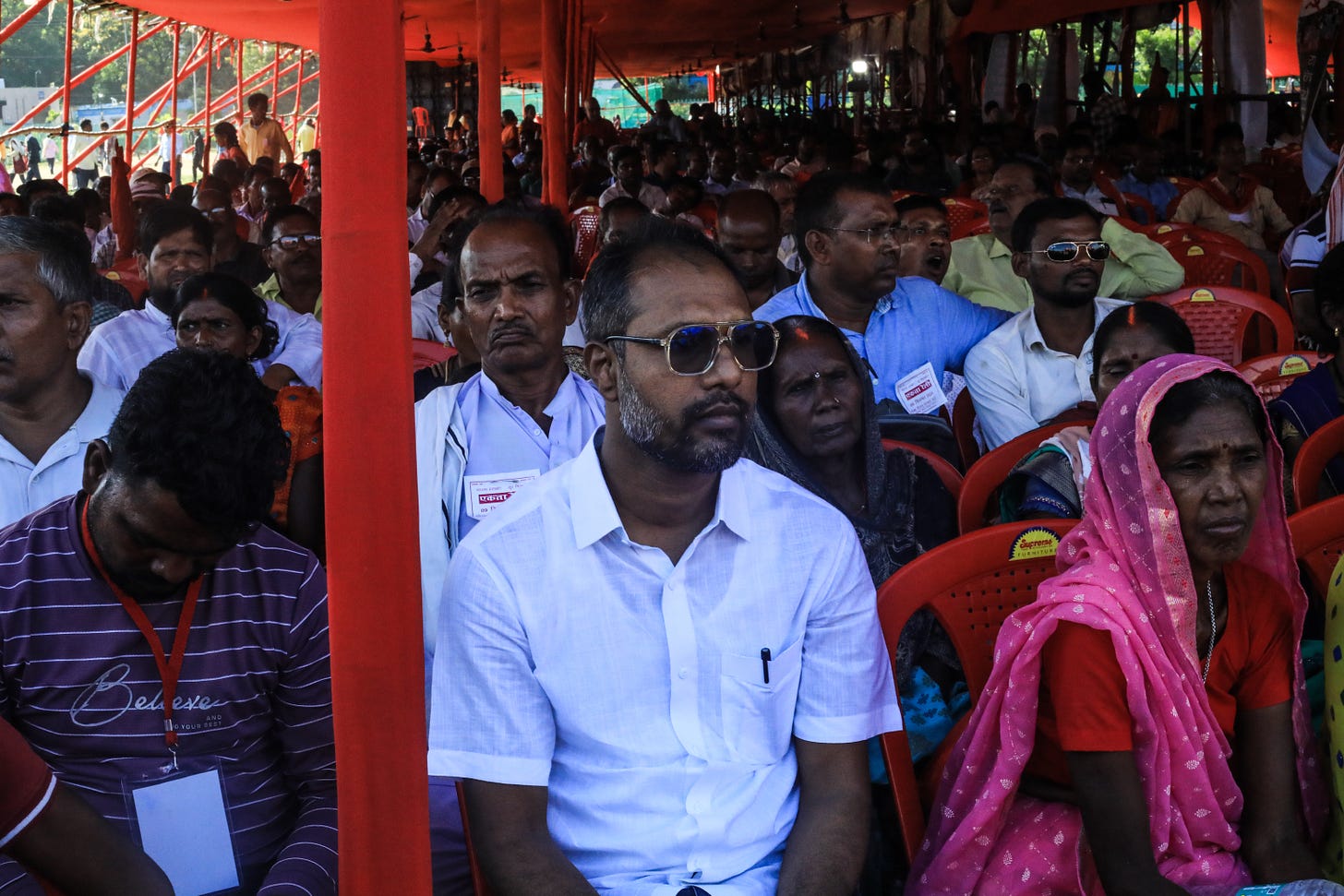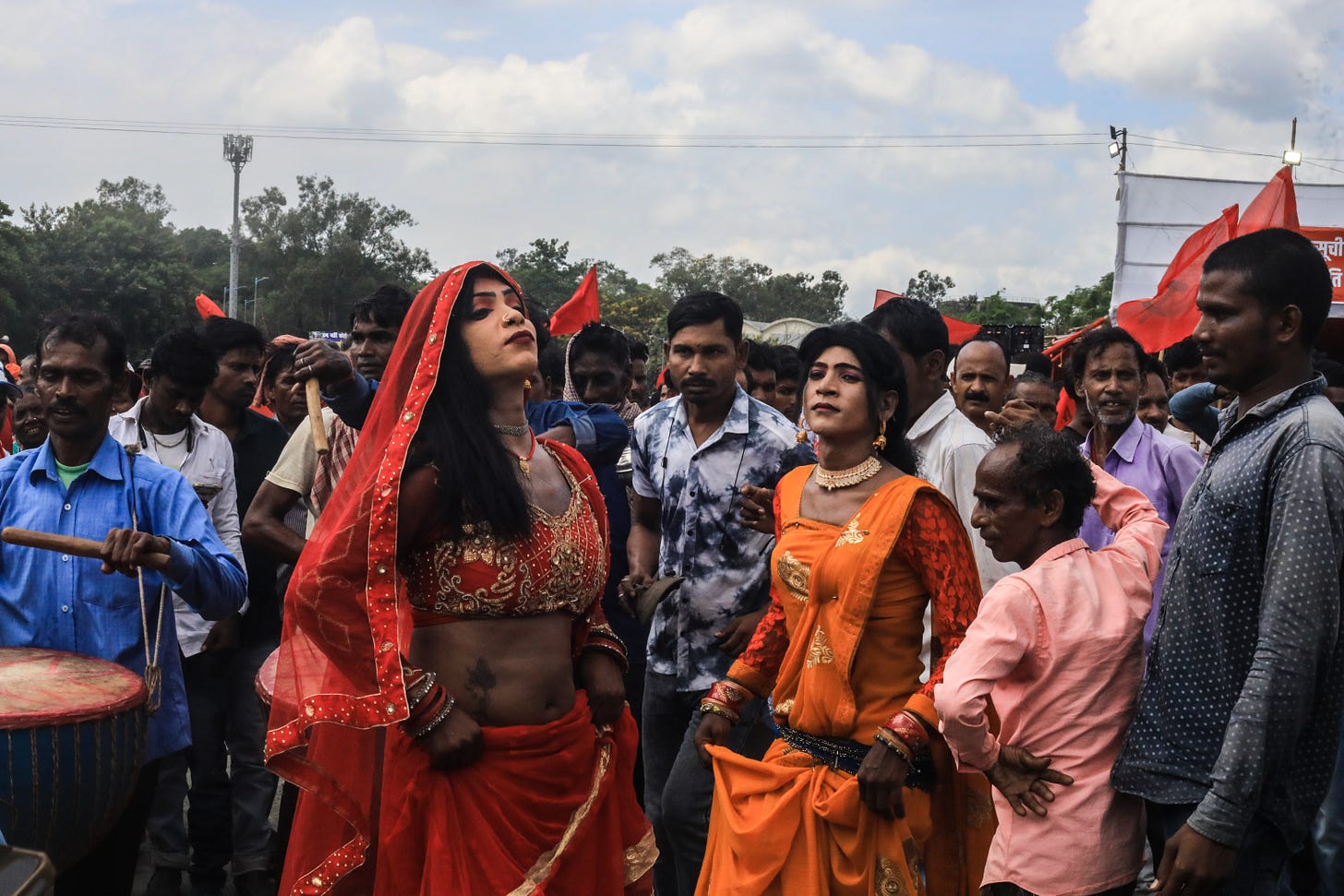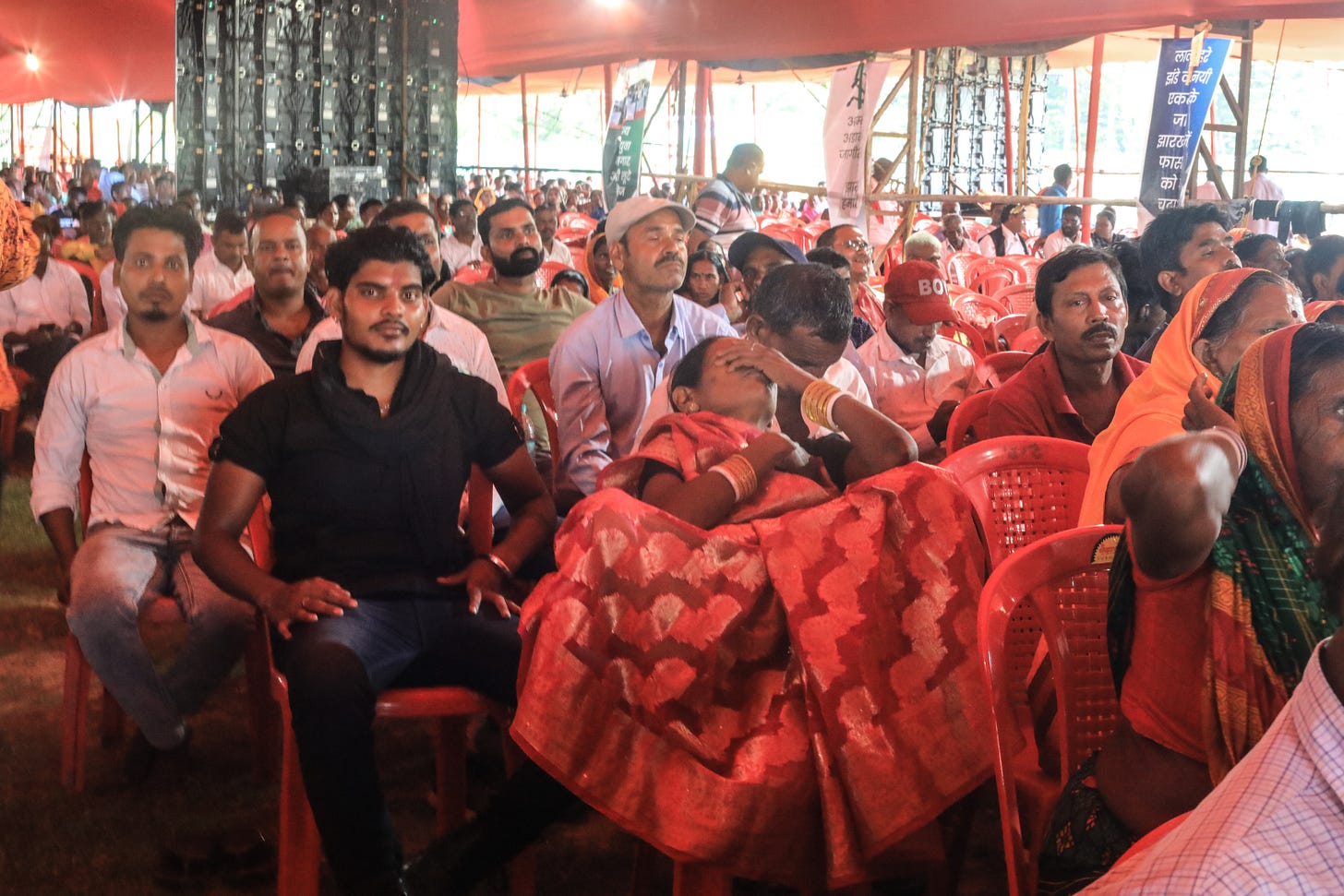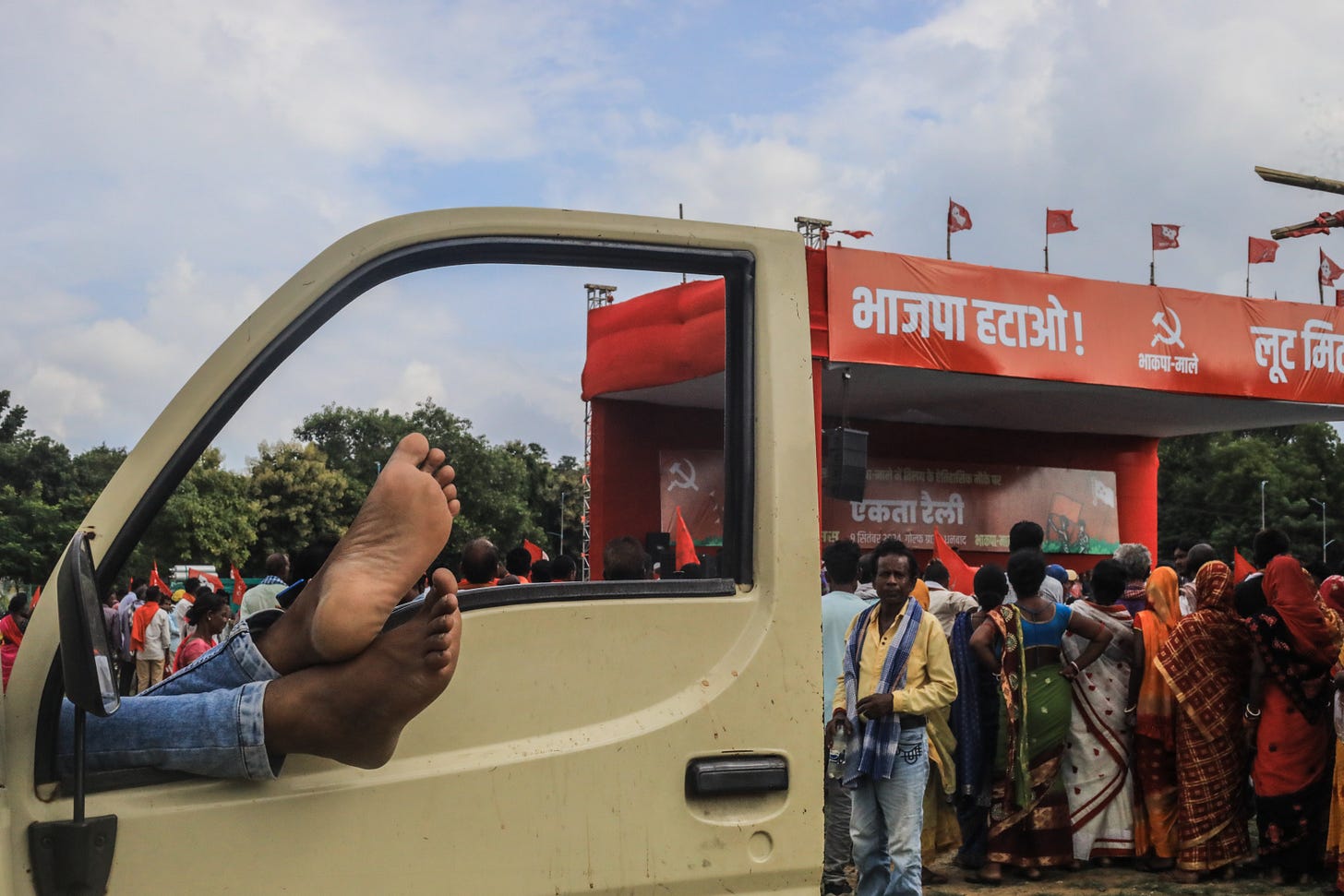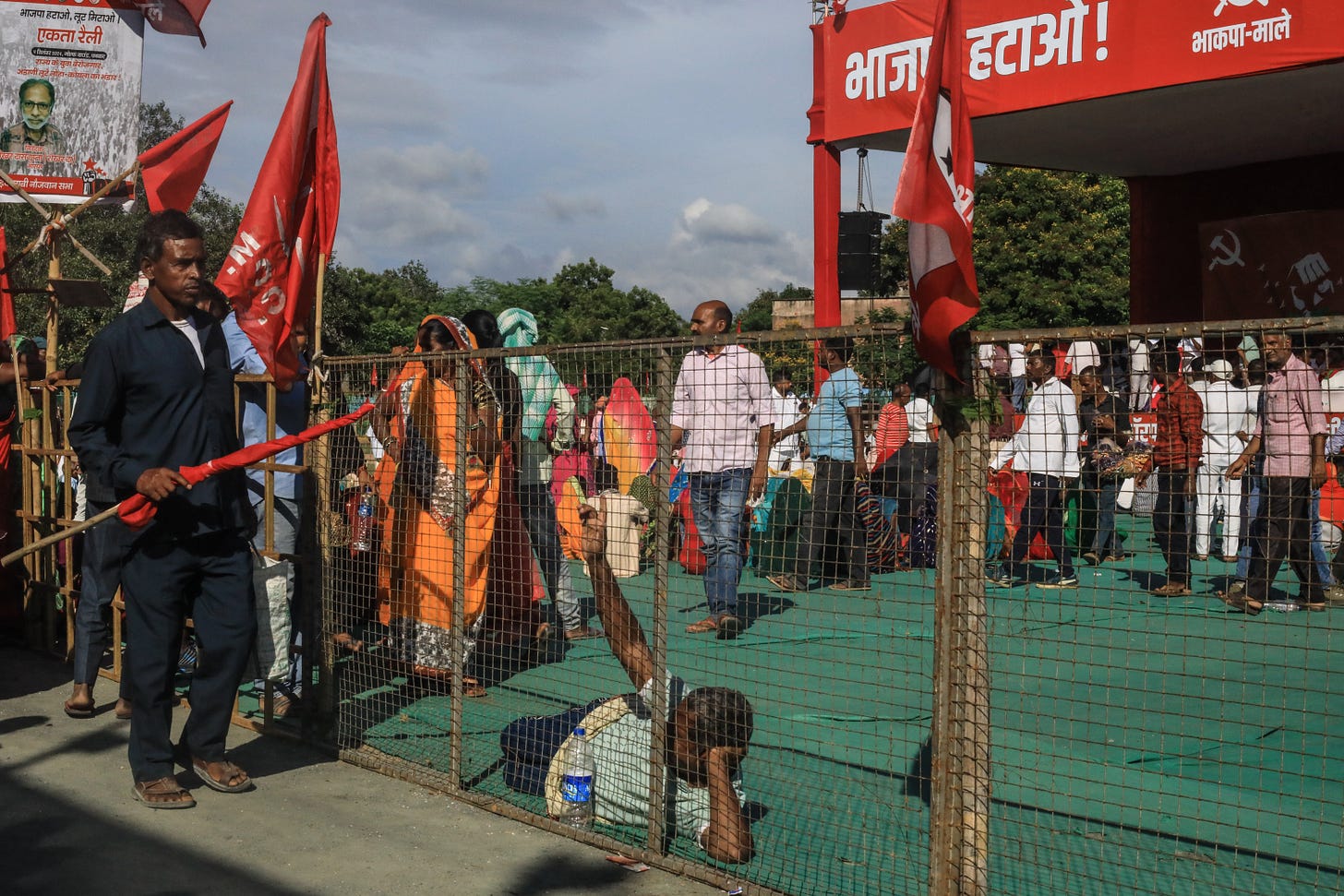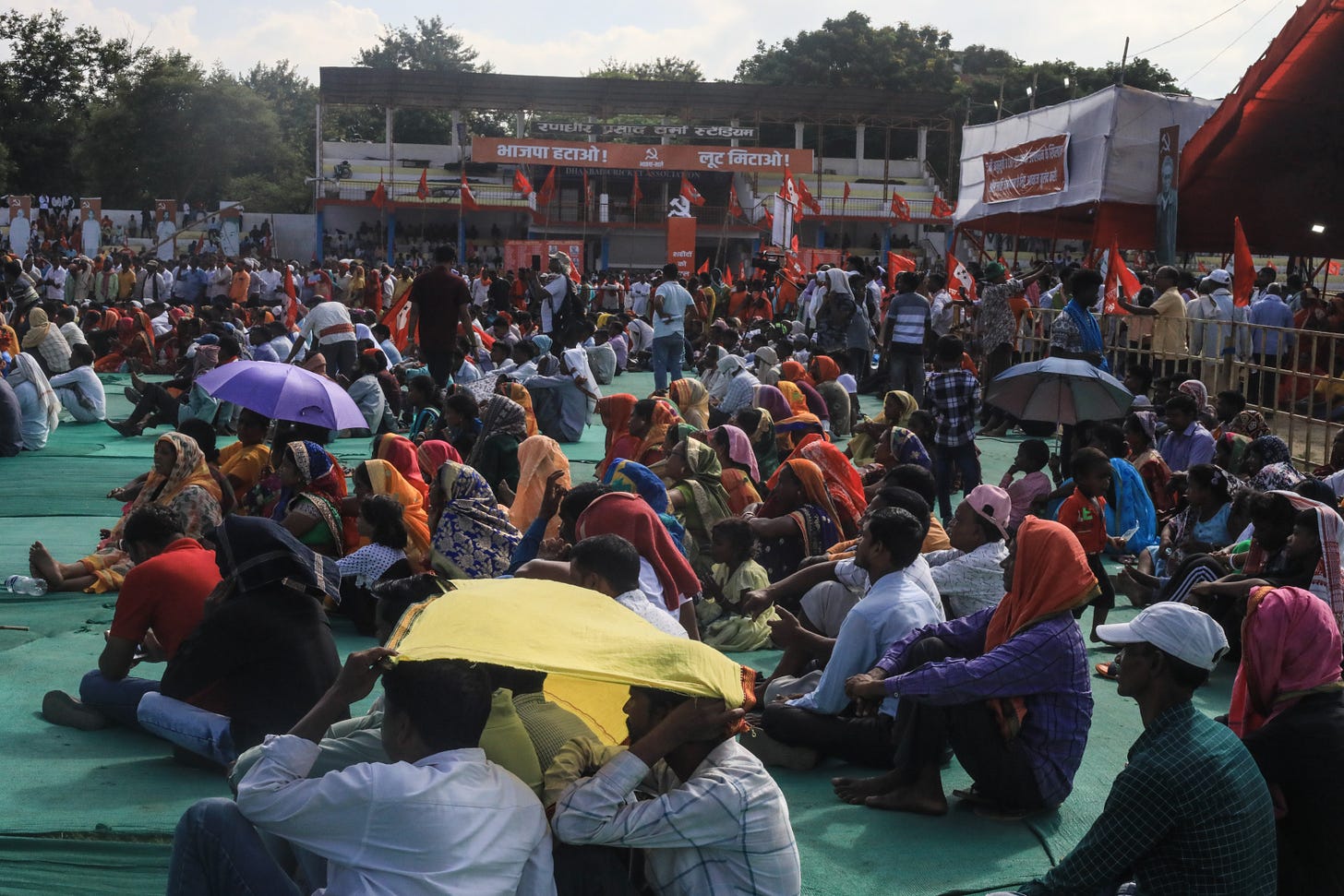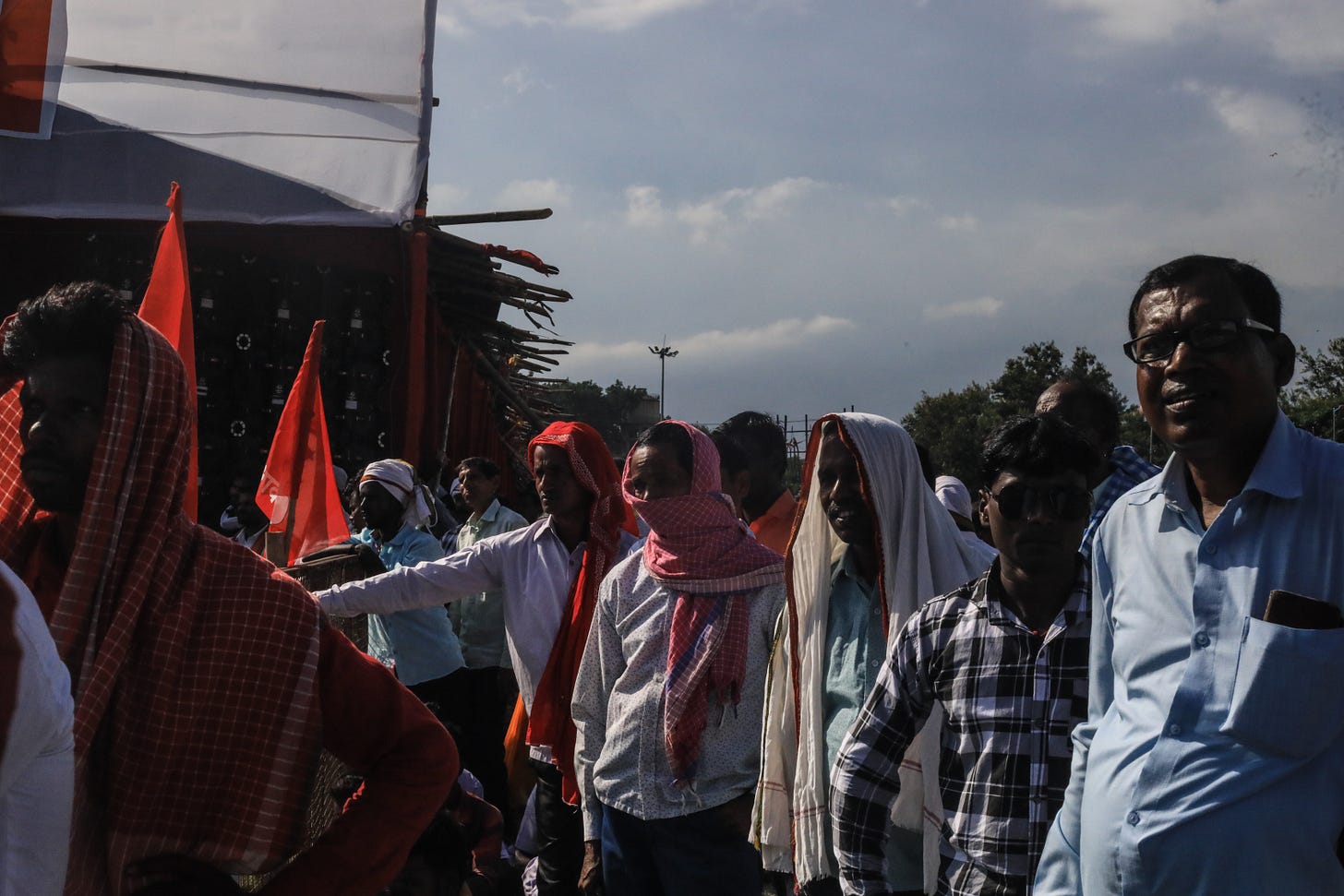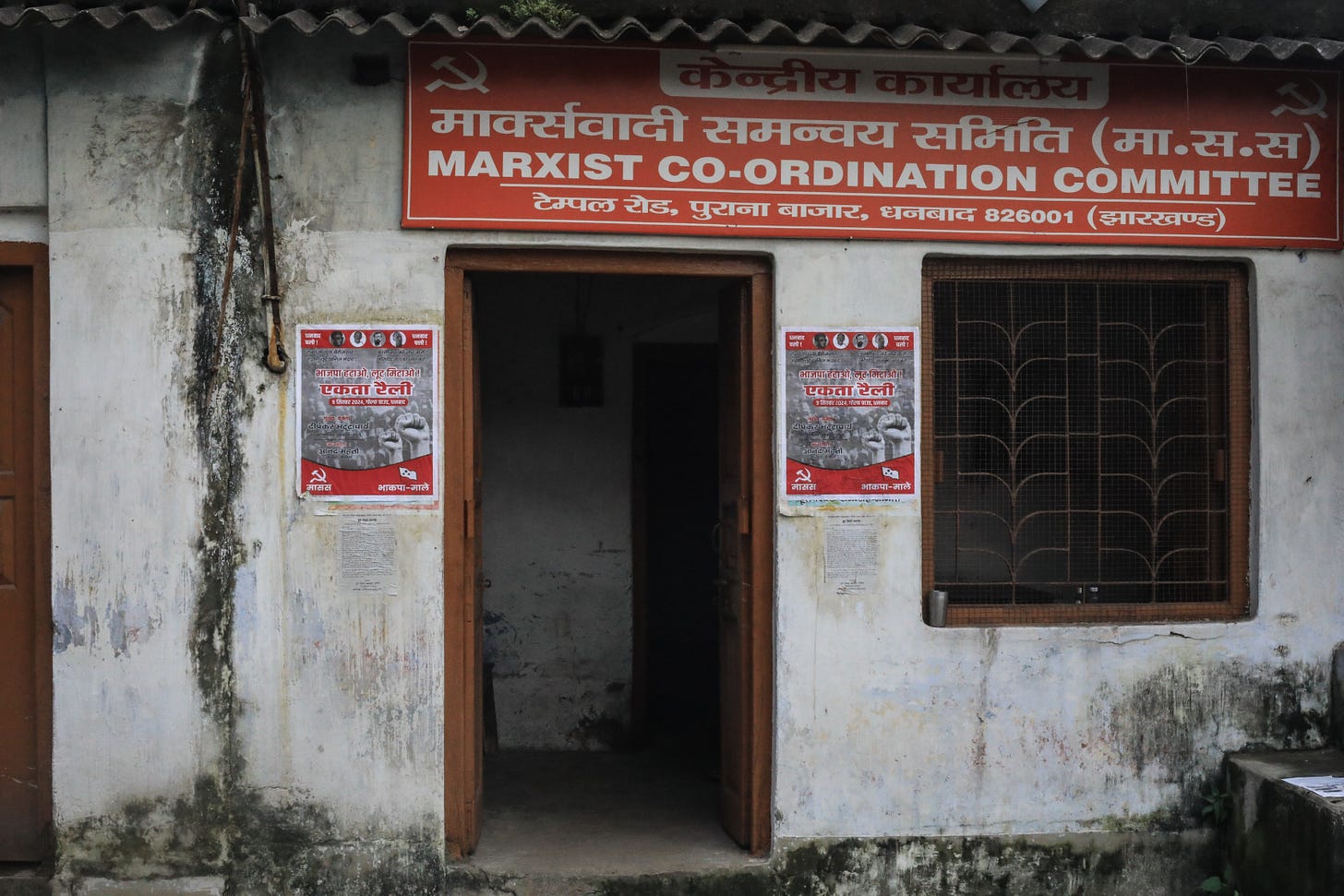Workers of the world...re-unite!
When the caste system met the factionalism and sectarianism of the Left movement, no progressive movement in the country was immune.
Yet a recent merger between two decades-old, militant, Left Parties in Jharkhand, has given scope for optimism and for realistic pessimism.
The Marxist Coordination Committee, or MCC, or the ‘Masses’, from its Hindi acronym, and the CPI-Marxist-Leninist (Liberation), or ‘Maley’ from its Hindi acronym, had a public rally to celebrate their merger on the 9th of September, 2024 in Dhanbad, Jharkhand. Both parties have roots in the militant Left of the 1960s-1970s, both parties fought electoral battles, both parties chose mass struggles over ‘armed actions’, both parties have a long list of martyrs and the assassinated; mass leaders, grassroot workers, and a heritage of resistance and defeat.
The MCC itself was formed by the late parliamentarian and one of the leaders of the Jharkhand state movement, A.K Roy, who was expelled from the Communist Party of India (Marxist) in 1971, when he merely wrote an article in ‘restrained’ praise of the first generation of Naxalbari of the 1970s. He was a chemical engineer by profession, a militant trade unionist, and three-time MLA and three-time MP, from Dhanbad district of Jharkhand. One can read about his historical contribution to the Jharkhand movement, here.
The CPI-ML (Liberation) takes its heritage from Naxalbari, Charu Mazumdar, the Bhojpur rebellion of Jagdish Master, Ramnaresh Ram, Rameshwar Ahir, Dr.Nirmal Mahto, and in Jharkhand from the martyrdom of Mahendra Singh of Bagodar, from where the sitting MLA Vinod Singh lost the recent Lok Sabha election, but still had taken 414,643 votes in a two-way battle with the BJP. In the 2020 Assembly election in Bihar, the CPI-ML had twelve Ministers of the Legislative Assembly. The MCC meanwhile, didn’t contest the recent Lok Sabha election, nor have they maintained their strongholds of Dhanbad: at Nirsa and Sindri in the Assembly elections of 2019.
Dhanbad has been a strong district of ‘reaction’ with repeated electoral sweeps by the BJP and the Congress since the liberalization of the 1990s. With A.K. Roy’s stroke in the early 2010s, and his eventual passing in 2019, an era ended, symbolically, with his body being carried by leaders of both the ML and the MCC.
The merger was always on the cards, but there’s also the Jharkhand CPI, which wasn’t even a part of the Mahagathbandhan in the recent Lok Sabha elections. And communist parties, like all political parties, are representations of particular class and caste interests, and when their contradictions can no longer be ignored, a merger is a preparation for a future split.
The national level and international splits between the CPI and the CPI-M, the Bolsheviks and Mensheviks, the Chinese and Russian communist parties, Stalinists and Trotskyites, the CPI-ML and the CPI-People’s Wars group, the many Naxalite groups: New Democracy, Janshakti, Pulla Reddy group, Kanu Sanyal group; the split in the Dalit Panthers, the splits in the Republican Party of India, and even the Black Panthers split in 1971. There was even the ‘separation’ of the MCC from the Jharkhand Mukti Morcha, who was once modelled after the ‘vietcong’: the list could go on, communists make the worst kind of bedfellows, as they are often kicking each other out of the room, for instance, even Mao Zedong was once expelled from the communist party of China.
Expulsions, boycotts, splits, reveal a strong tendency towards orthodoxy, close-mindedness, intolerance, paranoia. There is seldom awareness, that democratic centralism isn’t meant to be conformity, that one can’t have a moratorium on knowable facts, on discussion, debate; that one can’t reject democratic principles on erroneous notions that they are libertarian values, that one needs an espousal of evidence, just a basic humanism really; and that Marxism has always meant to be an evolving science, and endless debates about caste or class, or race or class, are just endless because they’re meant to keep an actual promise of solidarity and a revolution lost in a mire of senseless debate. Or when there is the ‘correct analysis of the situation’, the dictatorship has already killed everyone.
The sectarianism of the Left had made easy inroads into a society with a caste system, as easily as capitalism made dehumanization an even further inseparable part of Indian society.
One can never imagine a perfect solidarity or a union, yet how much of the recent merger can bring about a solidarity of context, rather than a solidarity of mere symbolism and rhetoric?
Only time can tell.
‘There should just be one communist party in India,’ said an old ‘PR’ (professional revolutionary) from the 1970s. ‘it was A.K. Roy’s dream since 1972.’
‘But how will they tolerate one another in one space?’ Asked another activist.
The rally itself was more an announcement of a defensive alliance against the destruction wrought to the state of Jharkhand by both capitalism and the BJP, that the dream of Jharkhand had not been fulfilled, that the unity of the Left also encourages the unity of the entire ‘Mahagathbandhan’. Speakers were not shy from speaking of their Naxalite past nor of Charu Mazumdar, the slogans of jal, jungle, jameen, were often invoked, and there was an underlying thematic, that speaker after speaker spoke for Dalit rights, women’s rights, Adivasi rights, and the rights of Muslims, workers and farmers. Both recently elected CPI-ML Ministers of Parliament, Rajaram Singh from Karakat and Sudama Prasad from Arrah were present, along with the ex-MLAs from the MCC, Aroop Chatterjee and Anand Mahato. The election in the summer was referenced by Maley General Secretary Dipankar Bhattacharya, ‘there were (kammi) weaknesses in both Bihar and Jharkhand,’ but a state like Uttar Pradesh, which has seen ‘bulldozer justice’, where in the name of Gau Rakshaks, members of the Muslim and Dalit community have repeatedly been assaulted and murdered, where there were the gangrapes of Hathras and Unnao… they had given a fitting reply to the BJP.’
A poster of slain Marxist Co-ordination Committee leader Gurudas Chatterjee, who was shot dead on the 14th of April, 2000.
A compiled list of martyrs of both parties.
The meeting started with a moment of silence for all the ‘shaheed’.
Posters of the late Vinod Mishra, the late A.K Roy and Mahendra Singh. Mahendra Singh was shot dead in Bagodar on the 16th of January, 2005.
People from across Jharkhand came into the Golf Ground of Dhanbad, long into the late afternoon of the public meeting. Estimates wary, but there was a population of around 30,000 or 40,000 people coming and going. Some attendees said that it took them over two hours to enter the ground, ‘the administration probably didn’t think there would be so many people.’
Manoj Manzil, mass leader and ‘maley’ communist from Ara, Bhojpur, sits inconspicuously in the crowd. An ex-MLA from Agiaon, he was expelled from the Bihar Assembly after a politically-motivated life conviction on a murder charge. He had been elected by 61% of the vote share, with around 84,777 votes.
Like most mass rallies in Jharkhand with a democratic spirit, the rally turns into a festive mela, a place of rest, and all security arrangements collapse as the people themselves start taking over the place.
A dour communist always appeals to the people to sit down, or to stay away from the barricade, but no one really does. People make their own space.
Even as it seems that not many people are listening, there are quite a few conversations where people comment on what is said, and people point out to their leaders, they take photographs, selfies, and buy literature and ask for pamphlets.
The following short discussions and anecdotes are from two separate communist spaces in Jharkhand:
I
‘They wanted us to replace the leader with the leader they chose. And we said no.’
‘Why?’
‘We asked, if this person they chose, did they struggle, fight for the people, go to jail? What qualifies them to lead a union? They are young and educated, that’s it? yeh hamse nahi hoga.’
‘So they then asked, whether we should split.’
‘At this time?’
‘Exactly, we said with this looming dictatorship, ye mahol, theek nahi hai. No, movement can afford to split.’
II
A constitution of a party says that no member of the party should ever put their personal profit above that of the party or the people.
But an hour-long debate takes place in the office when one of the party secretaries says that he should get rent from the party, for the room he provides for the party premises.
The older cadre were livid.


